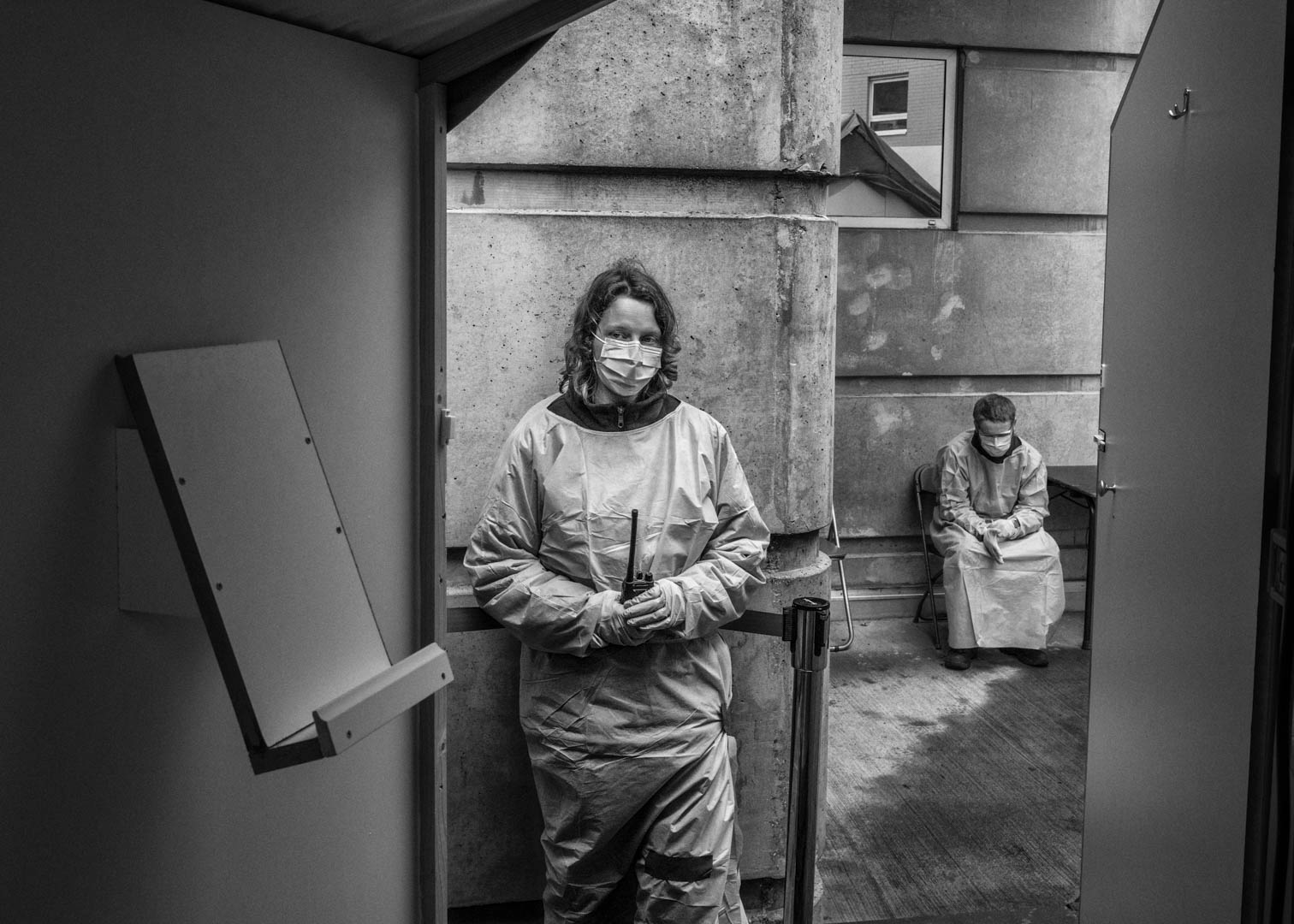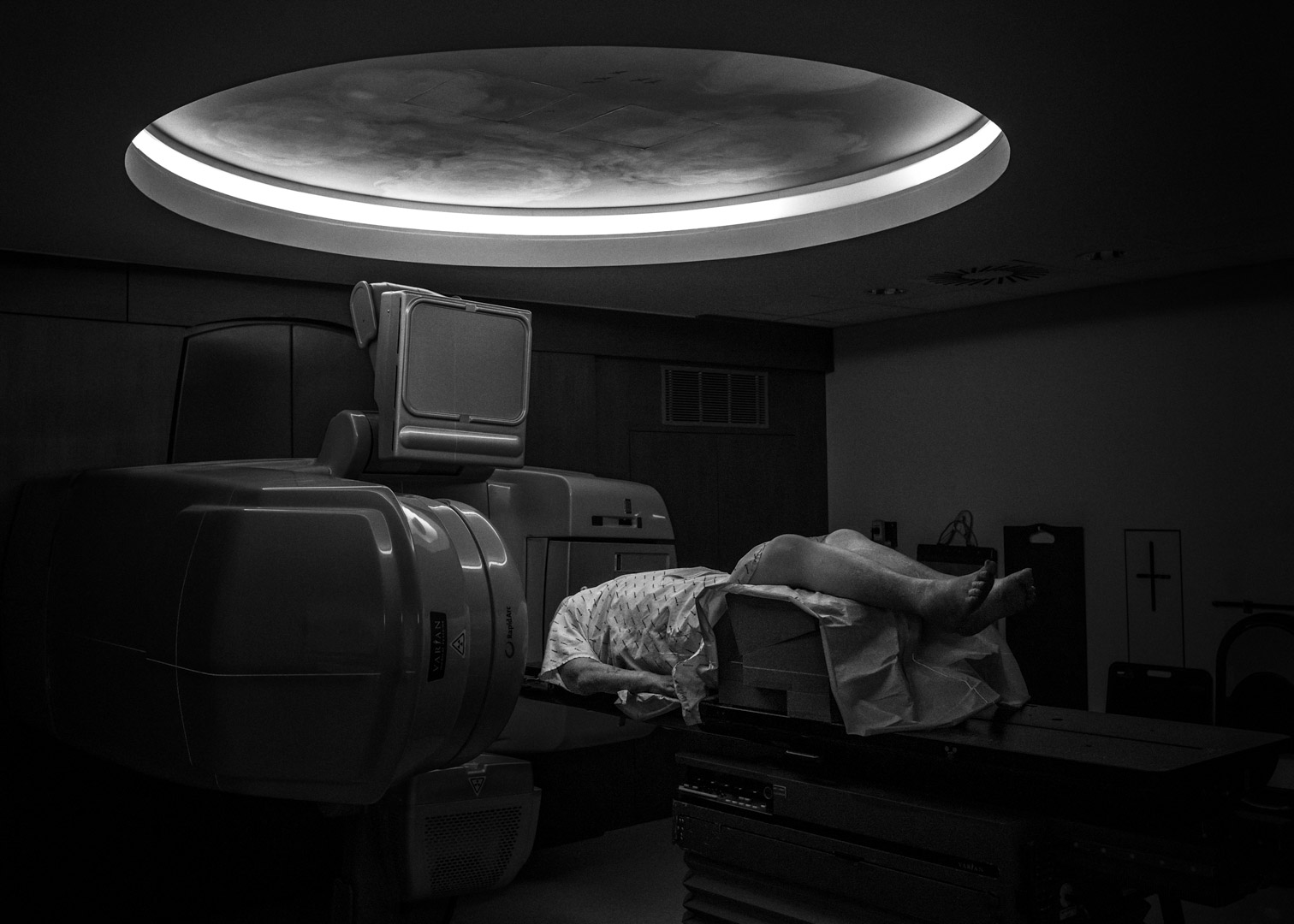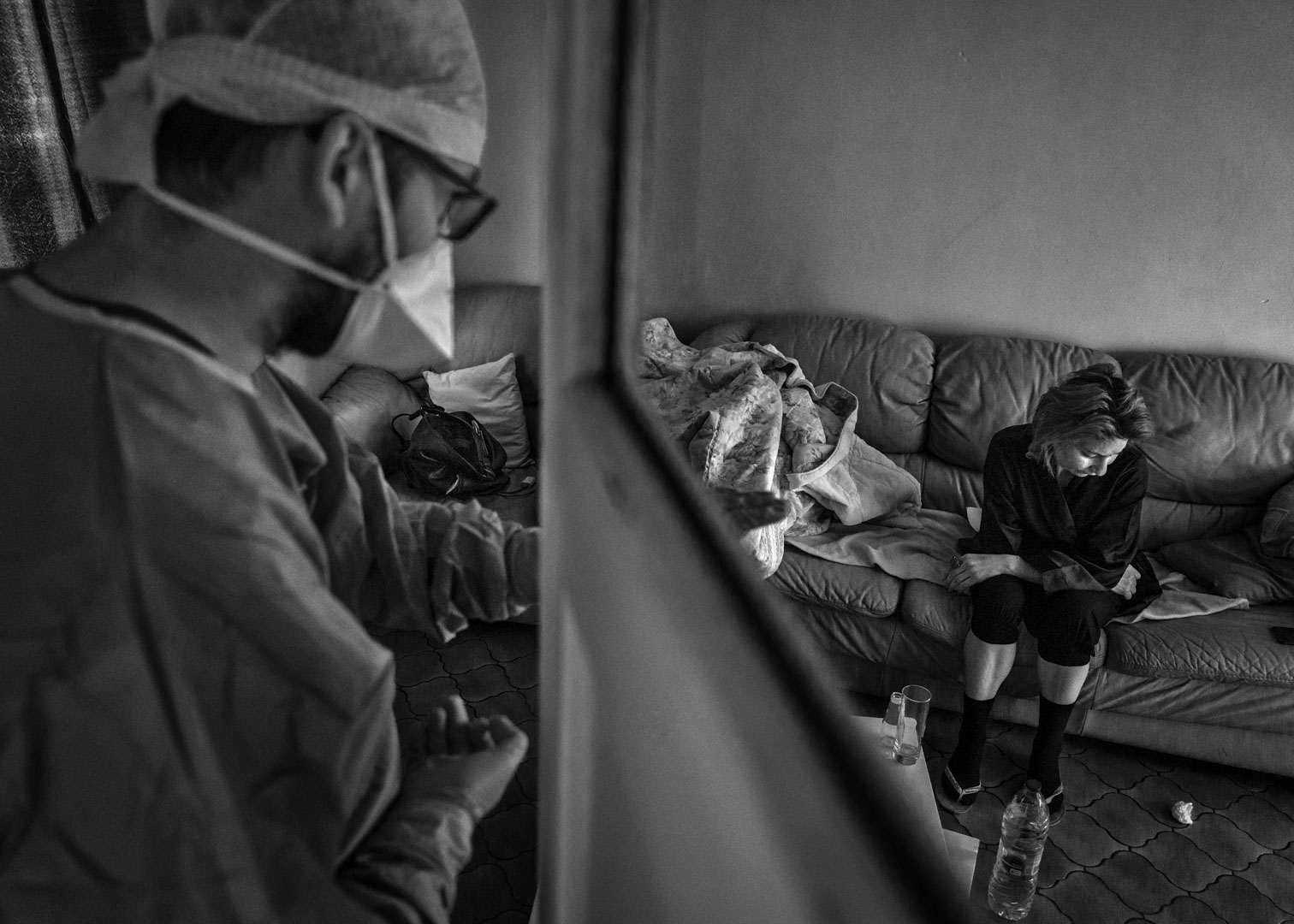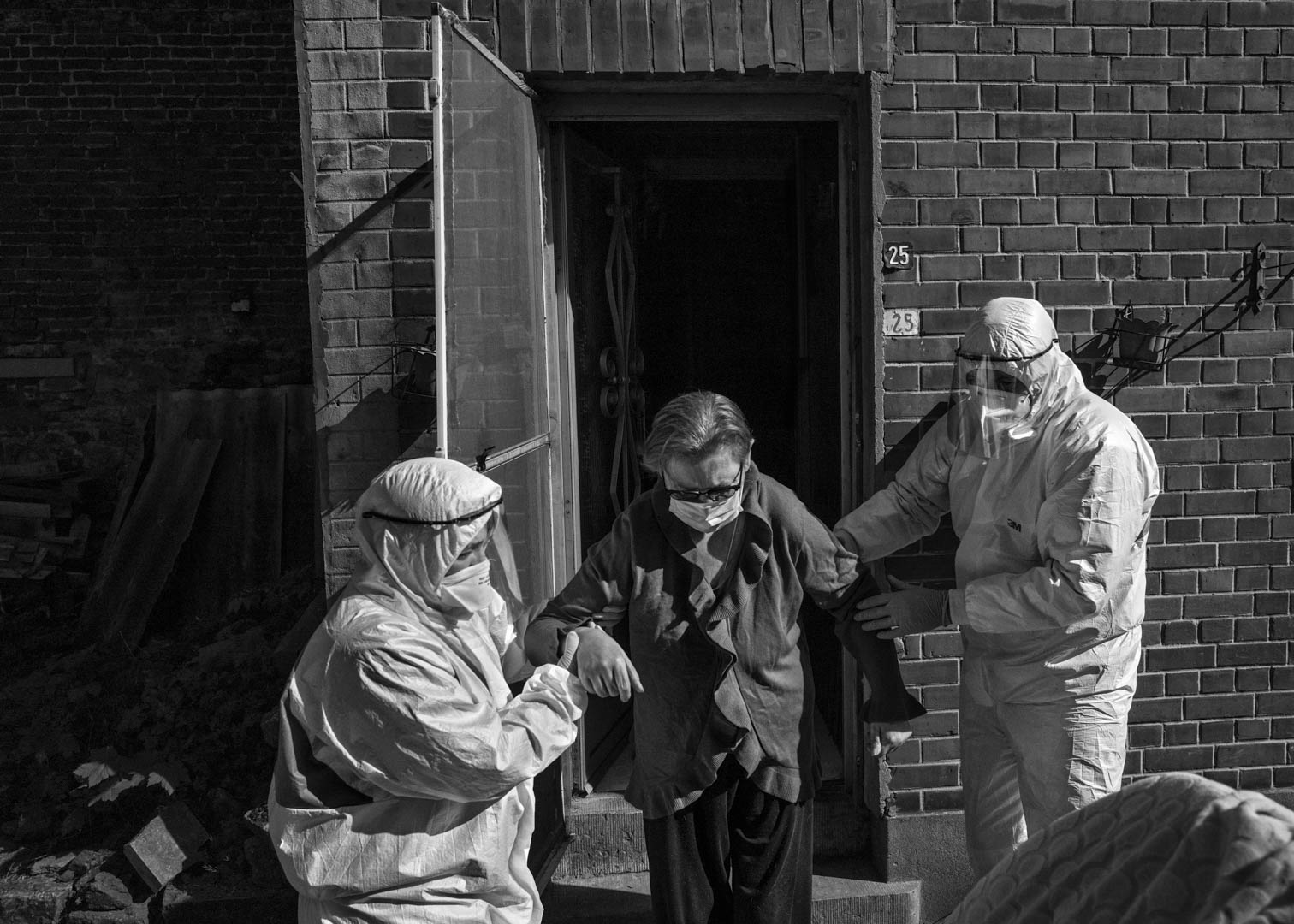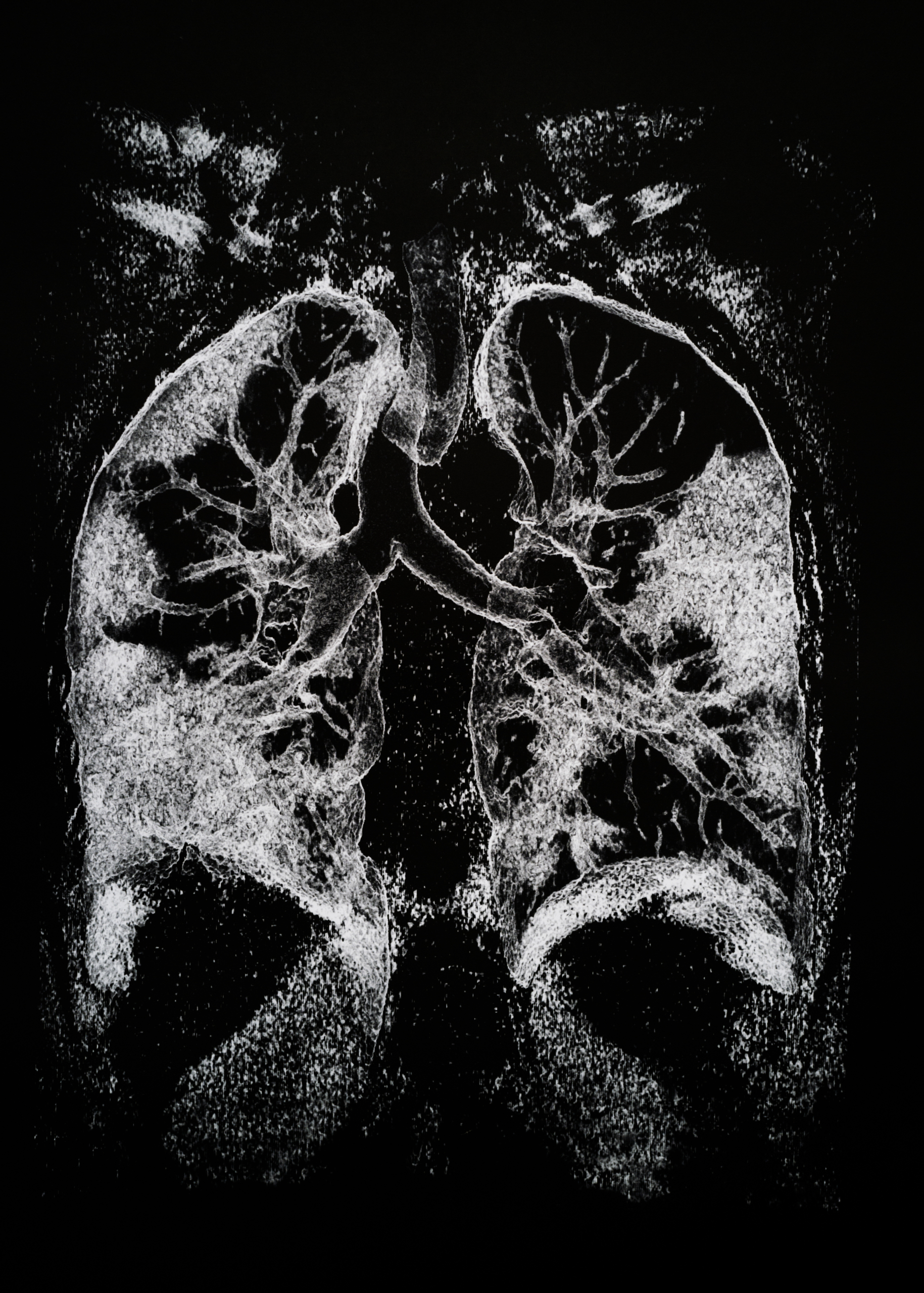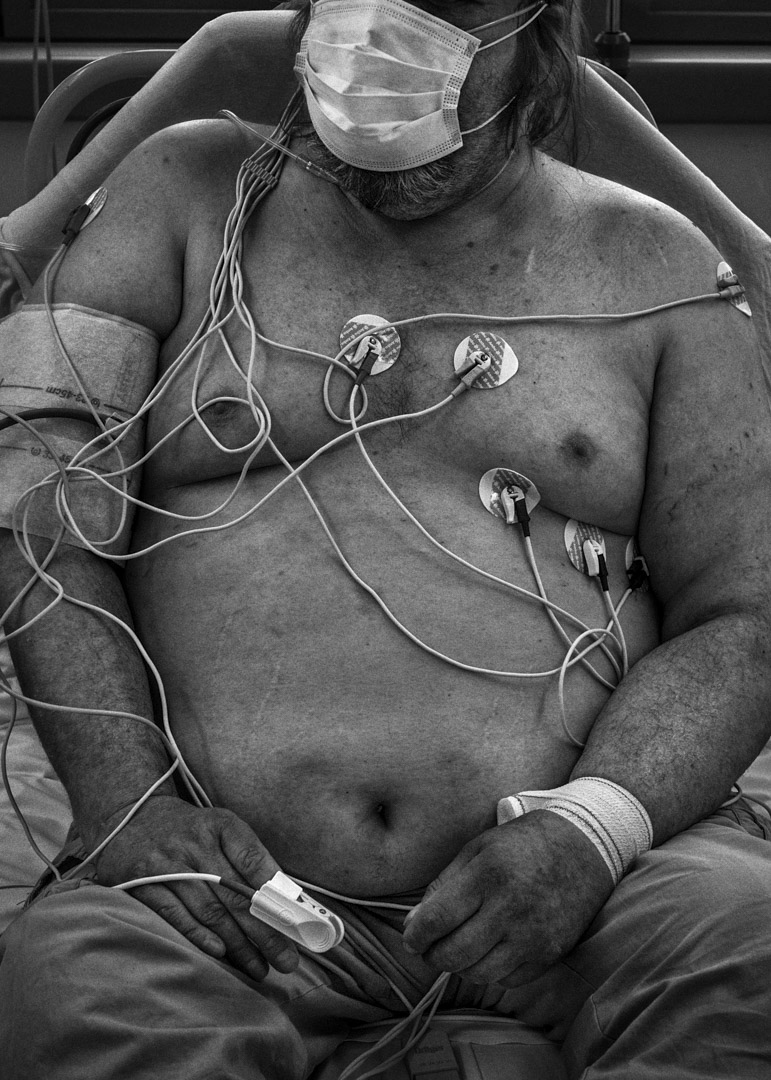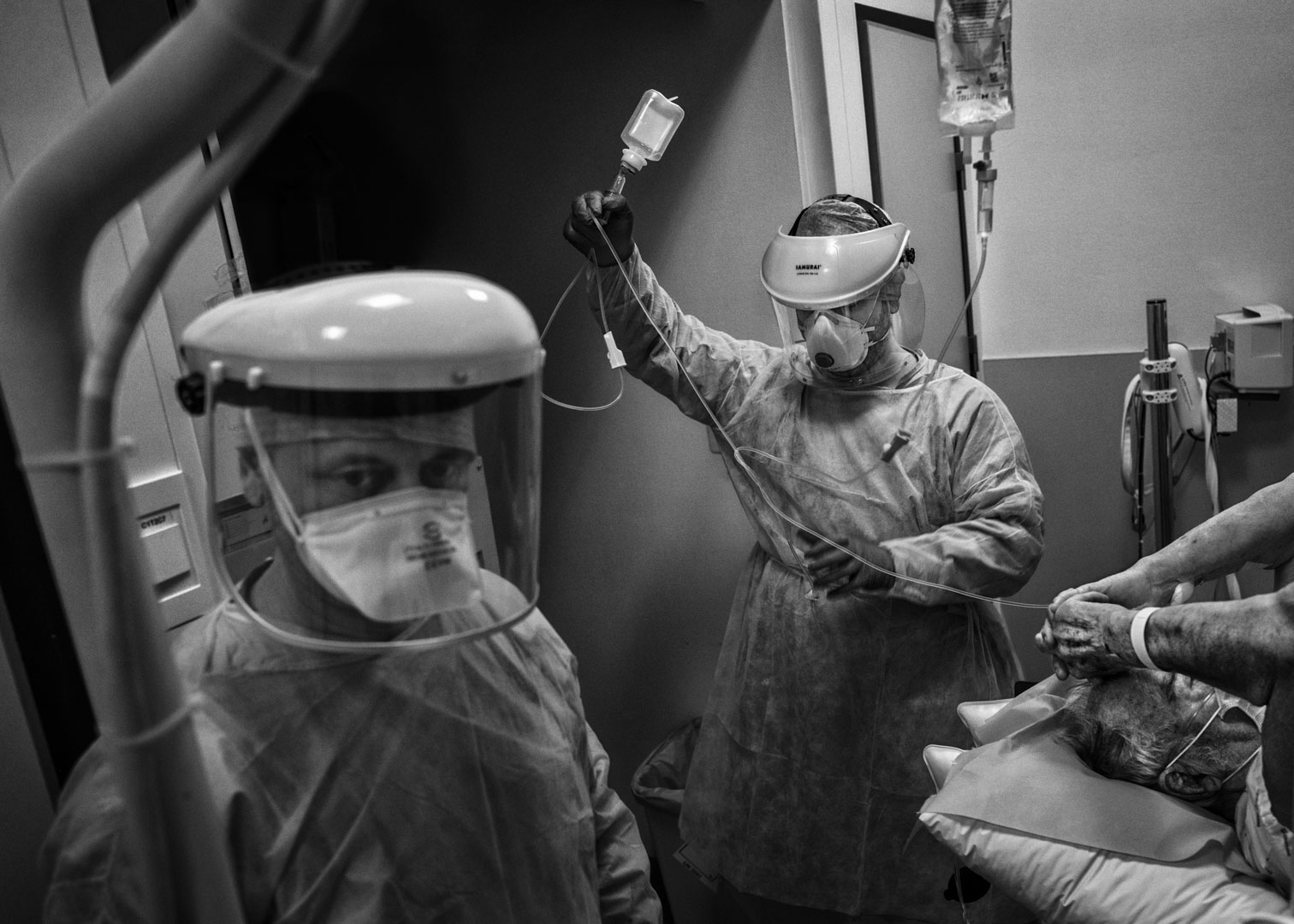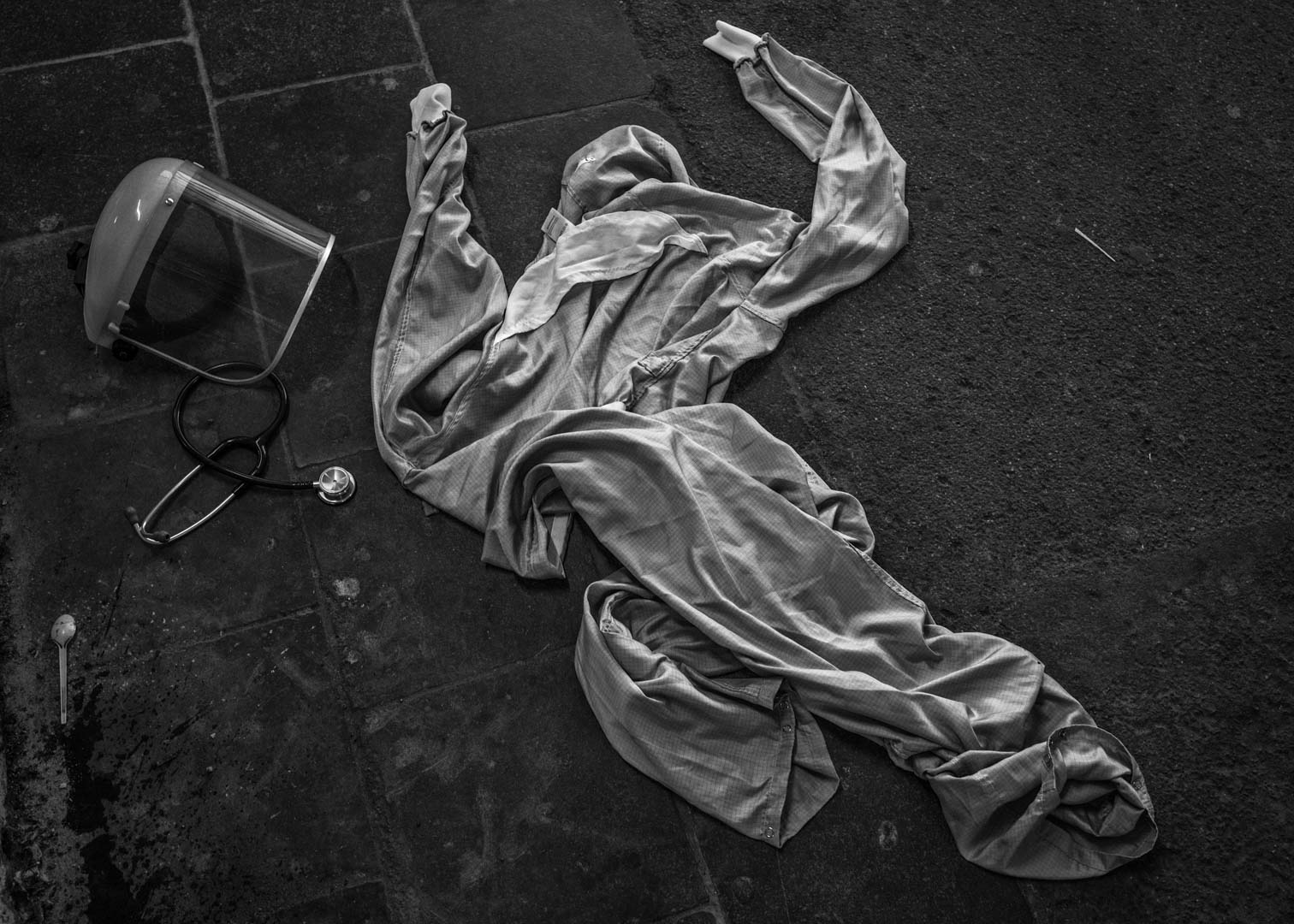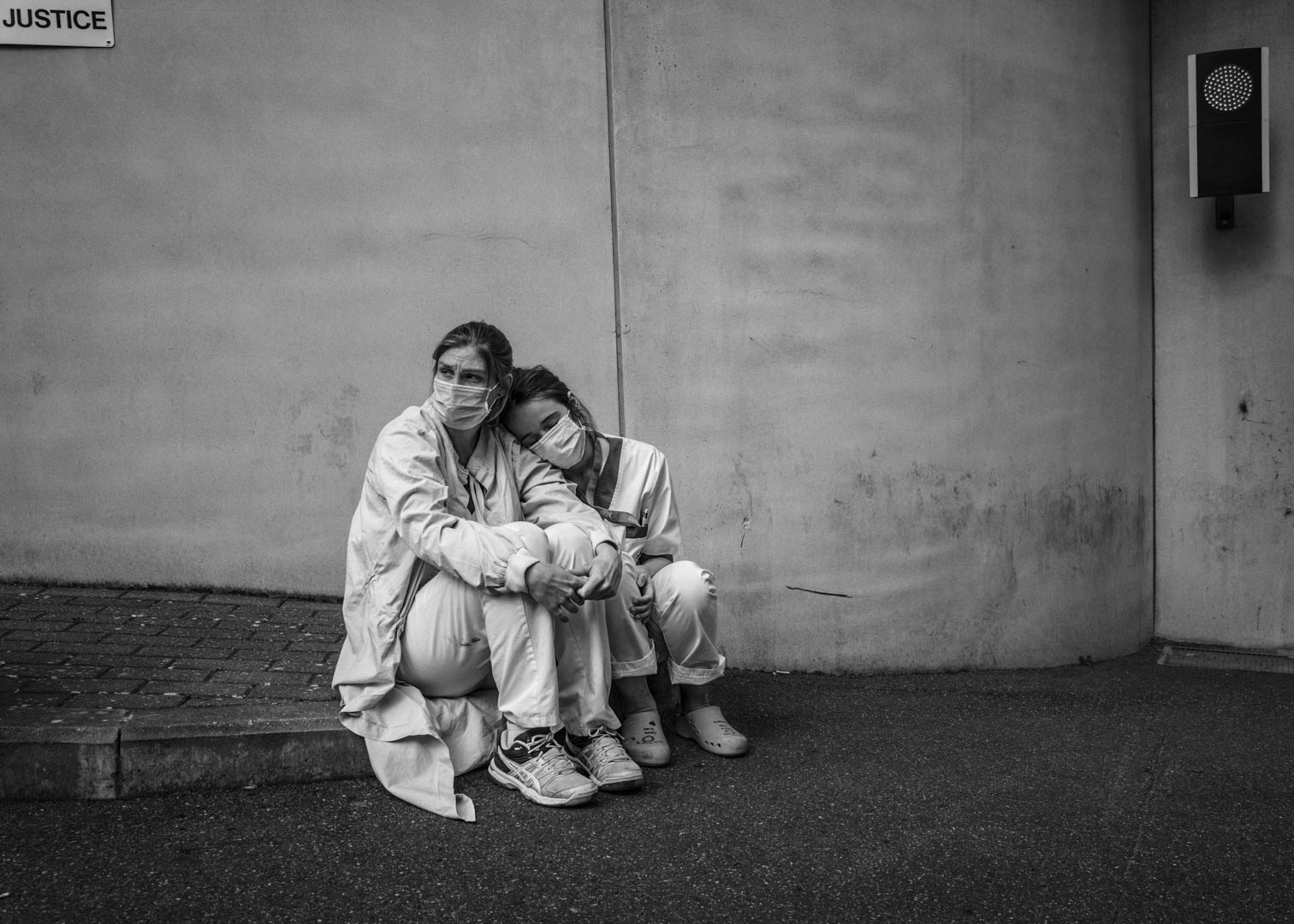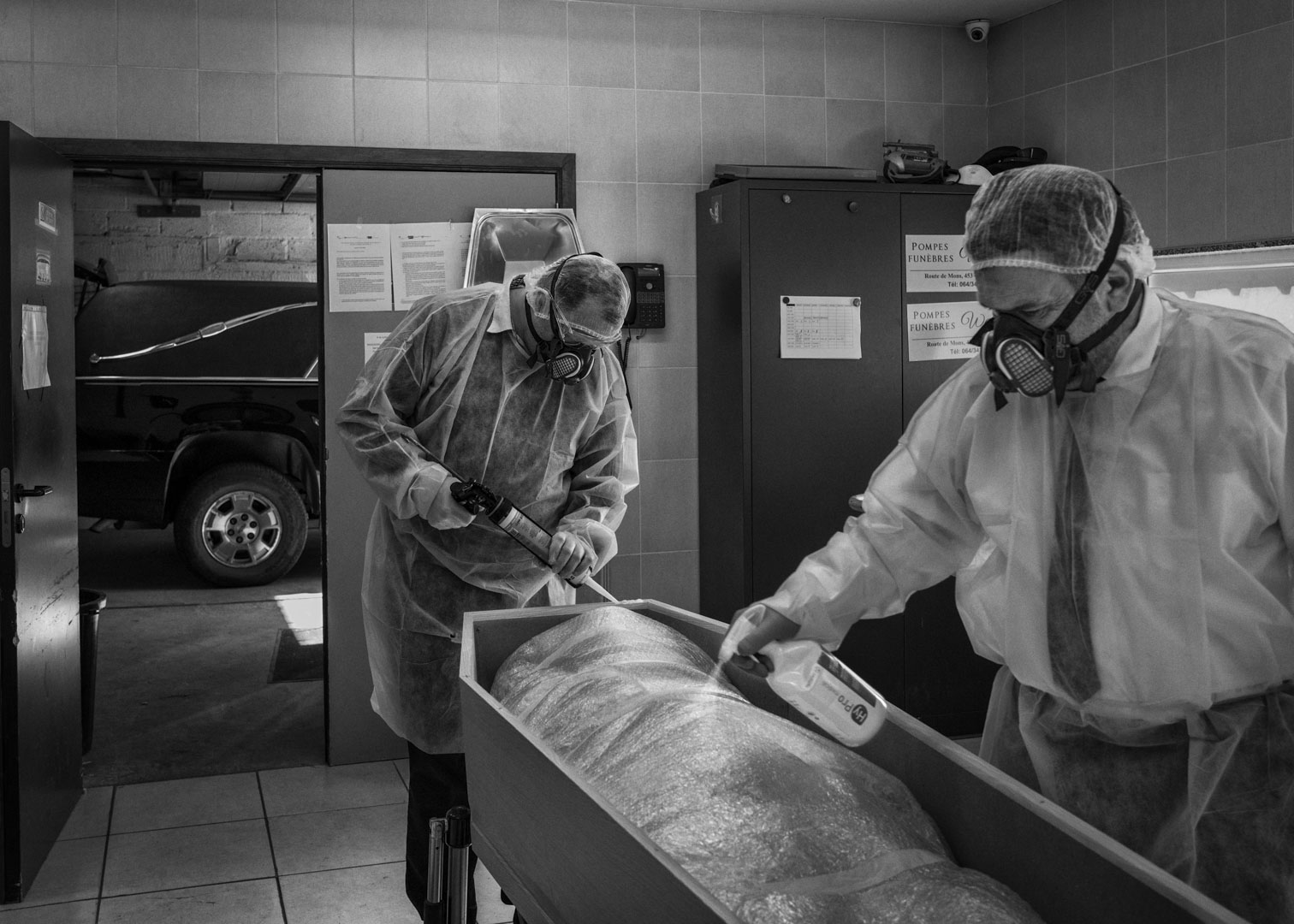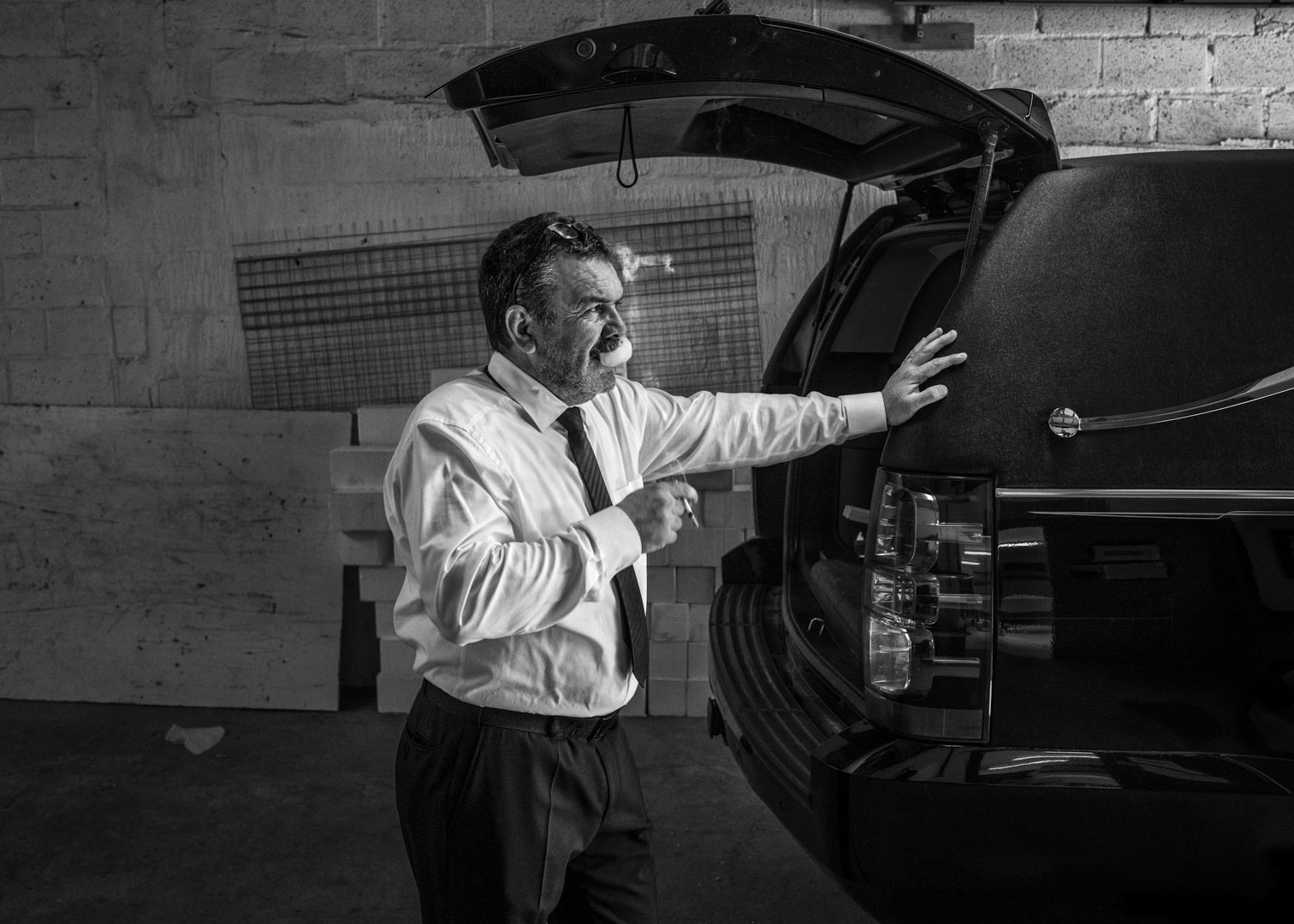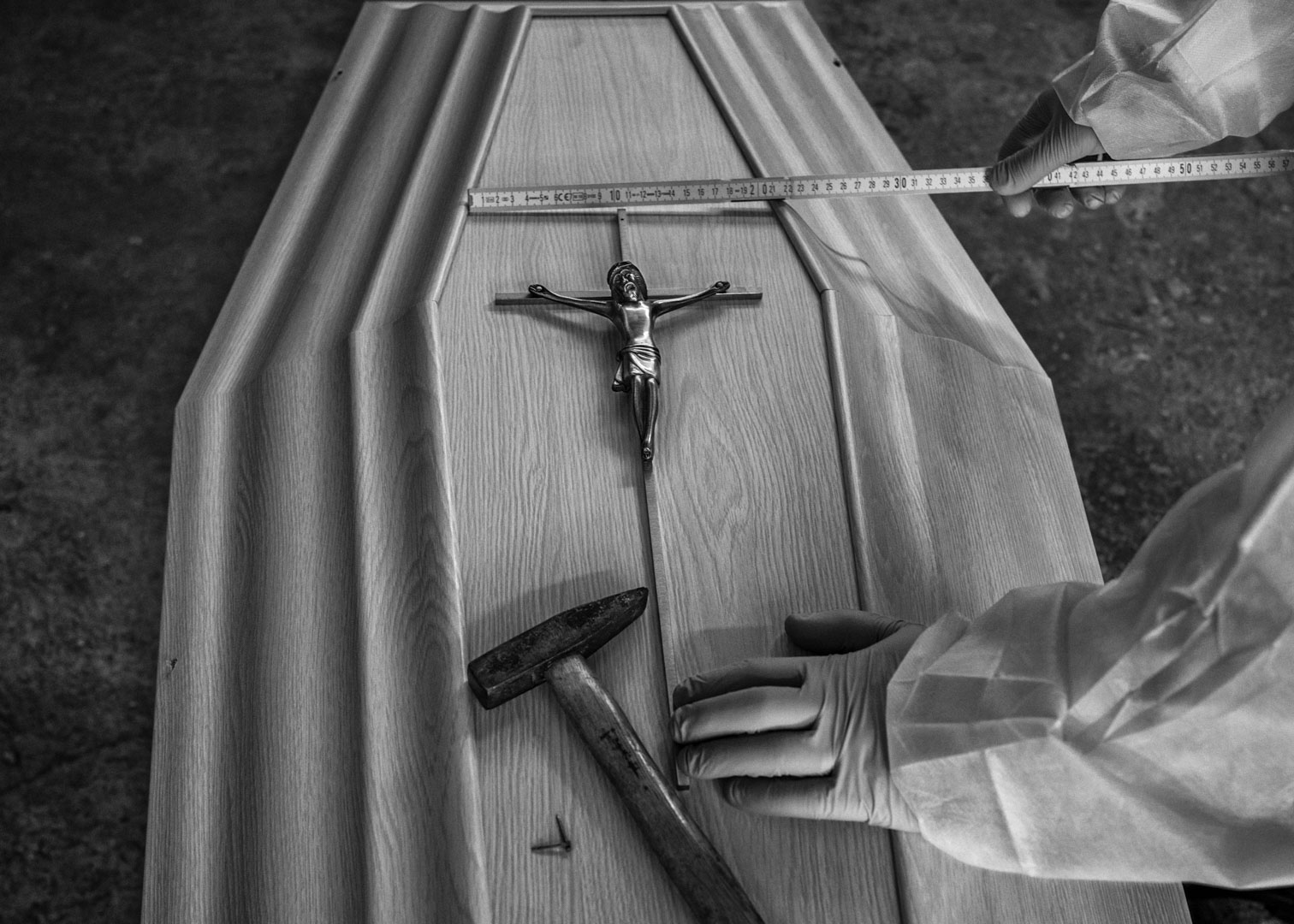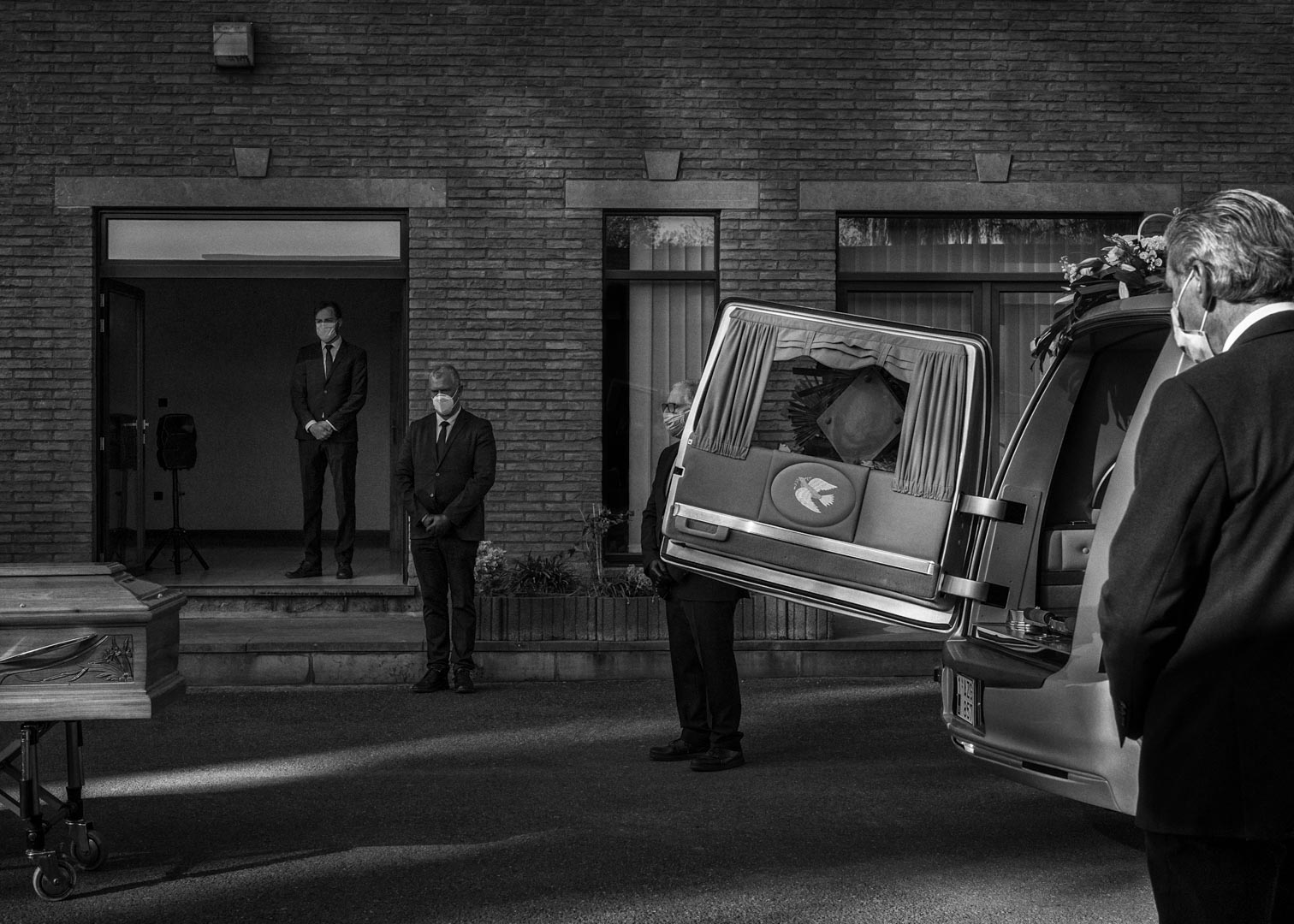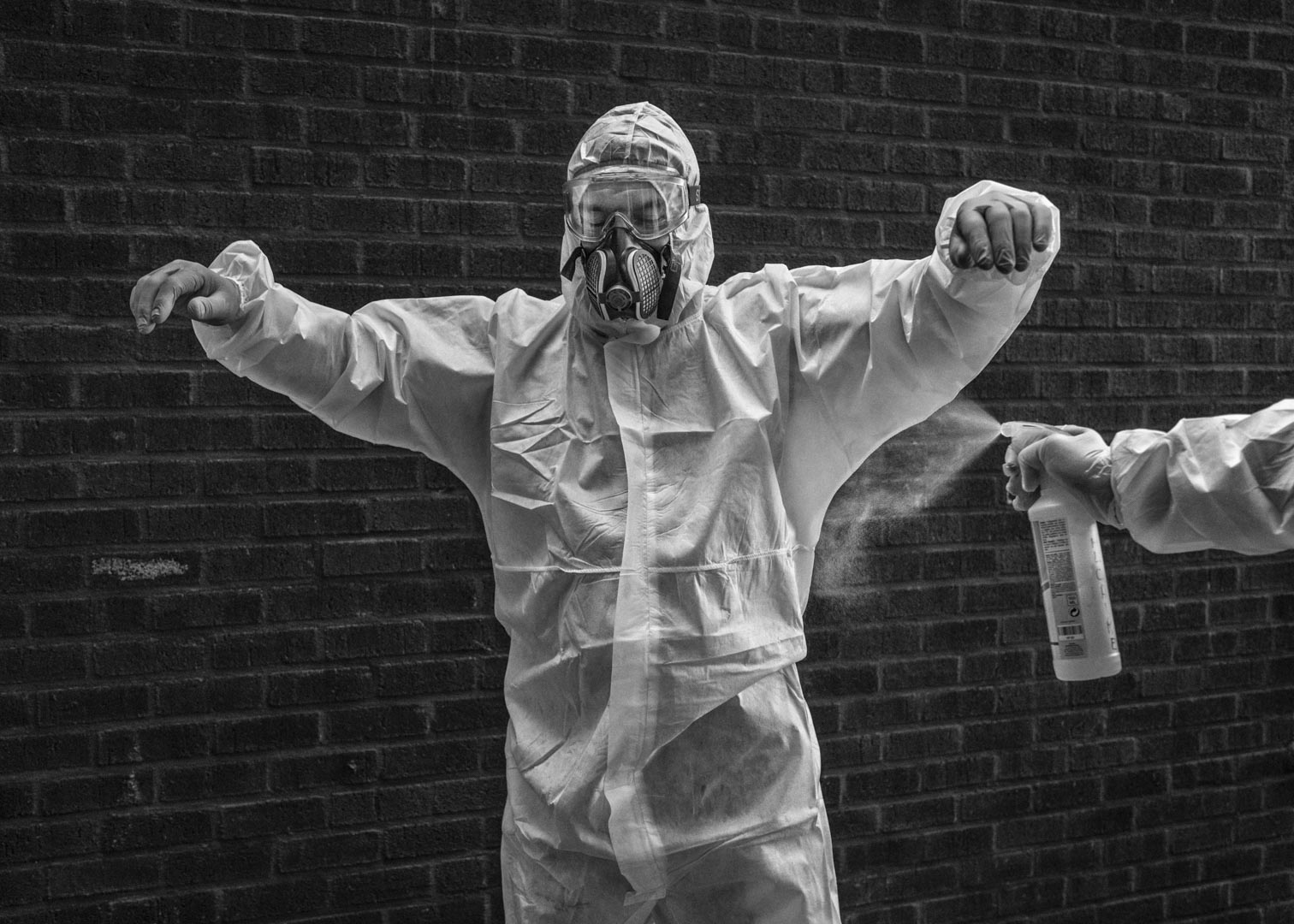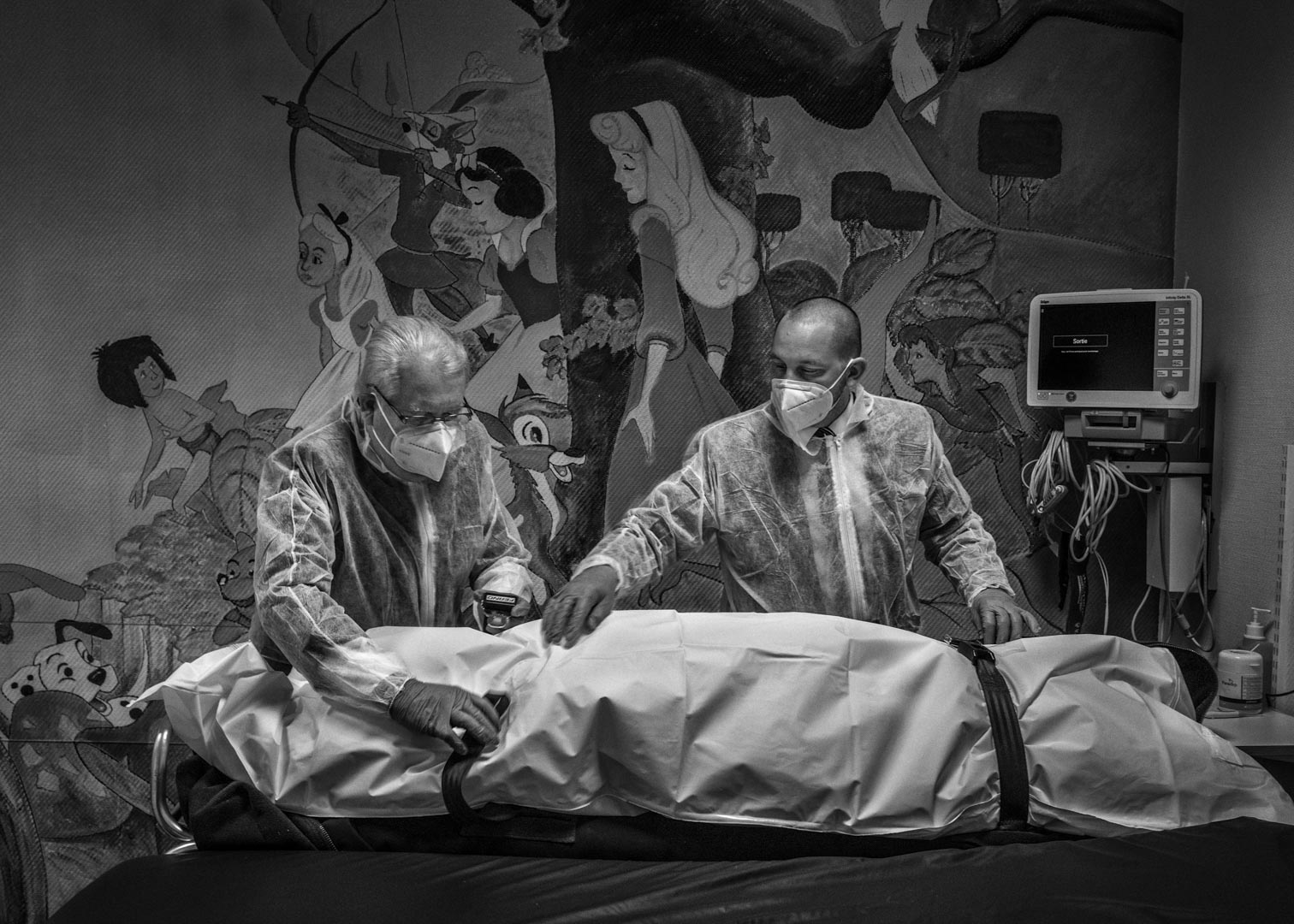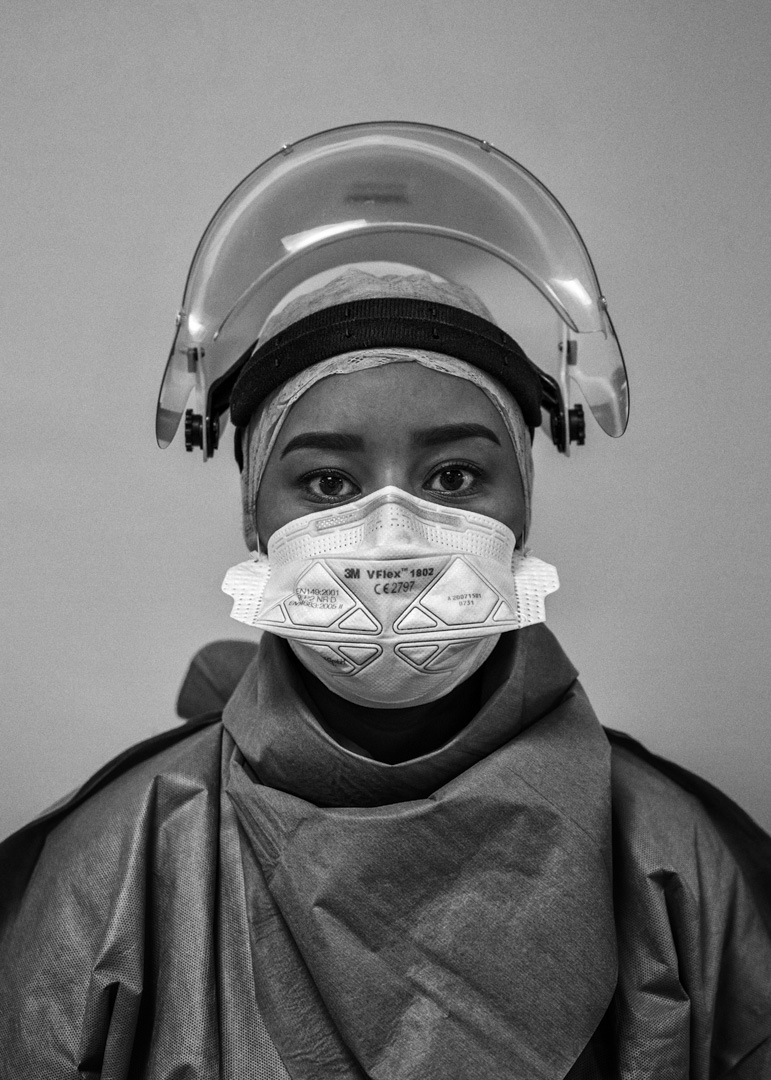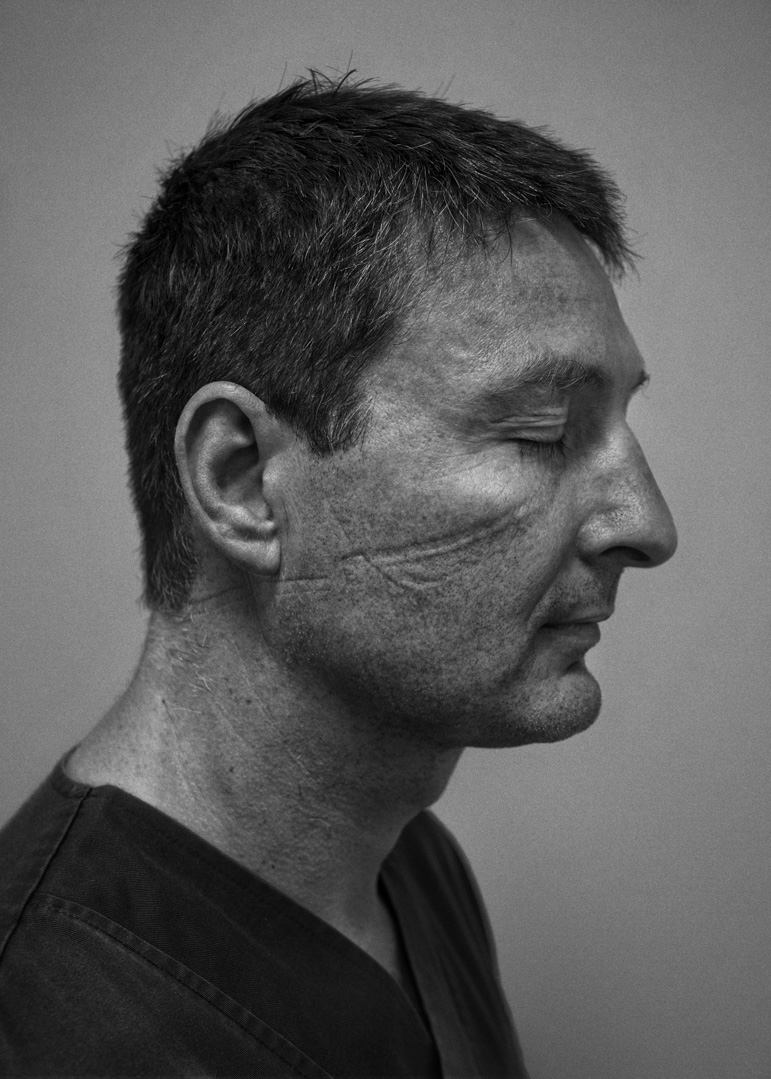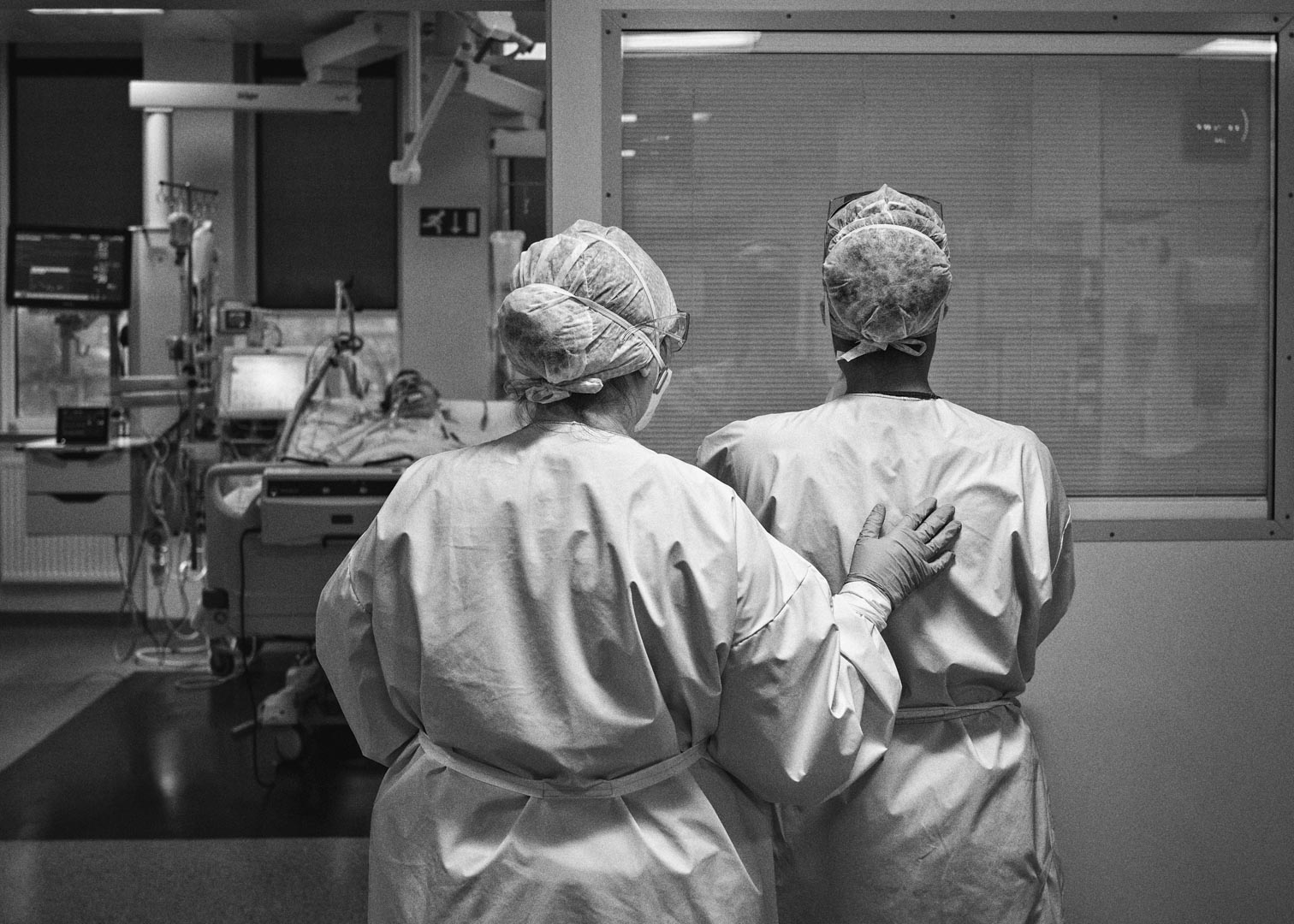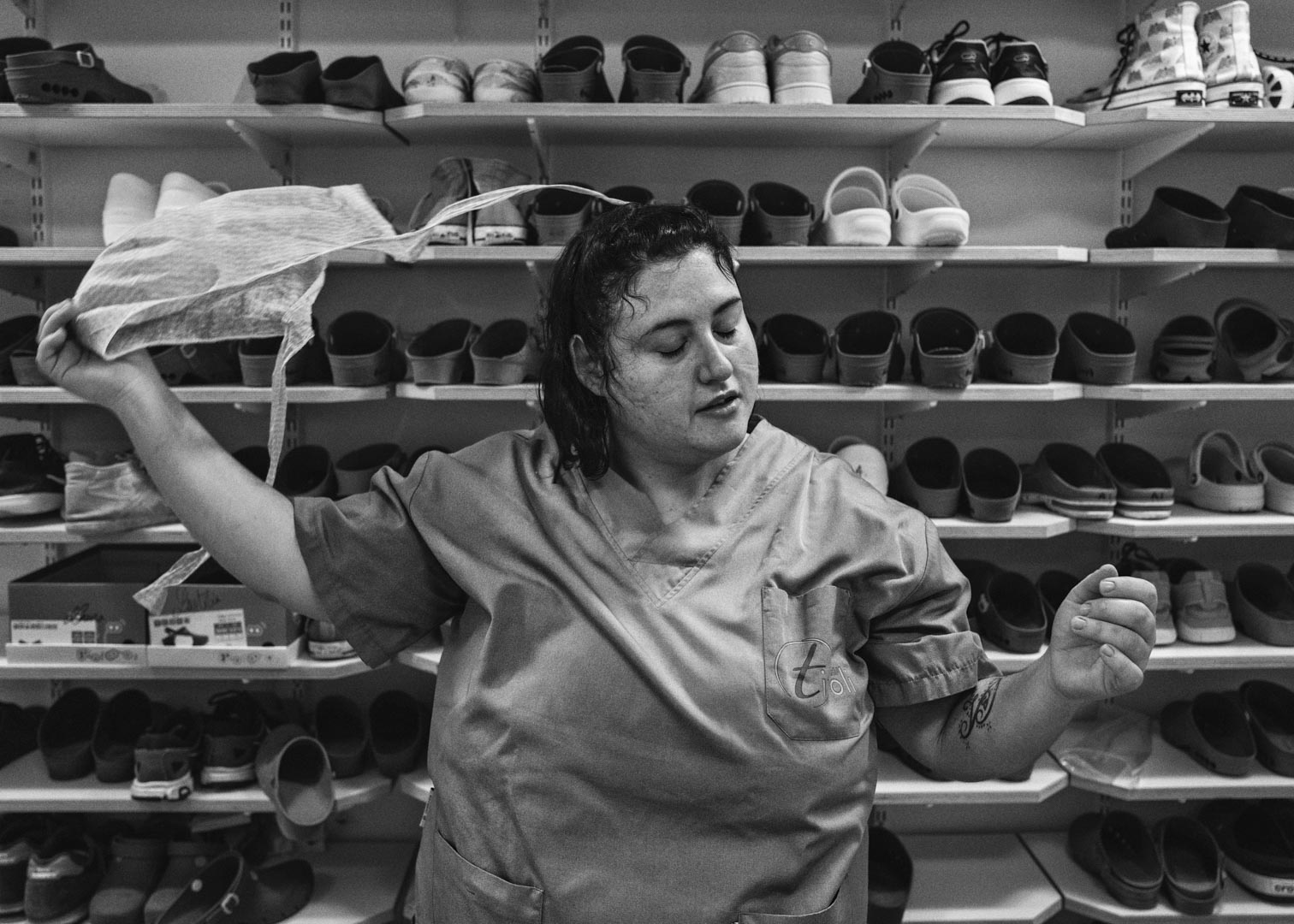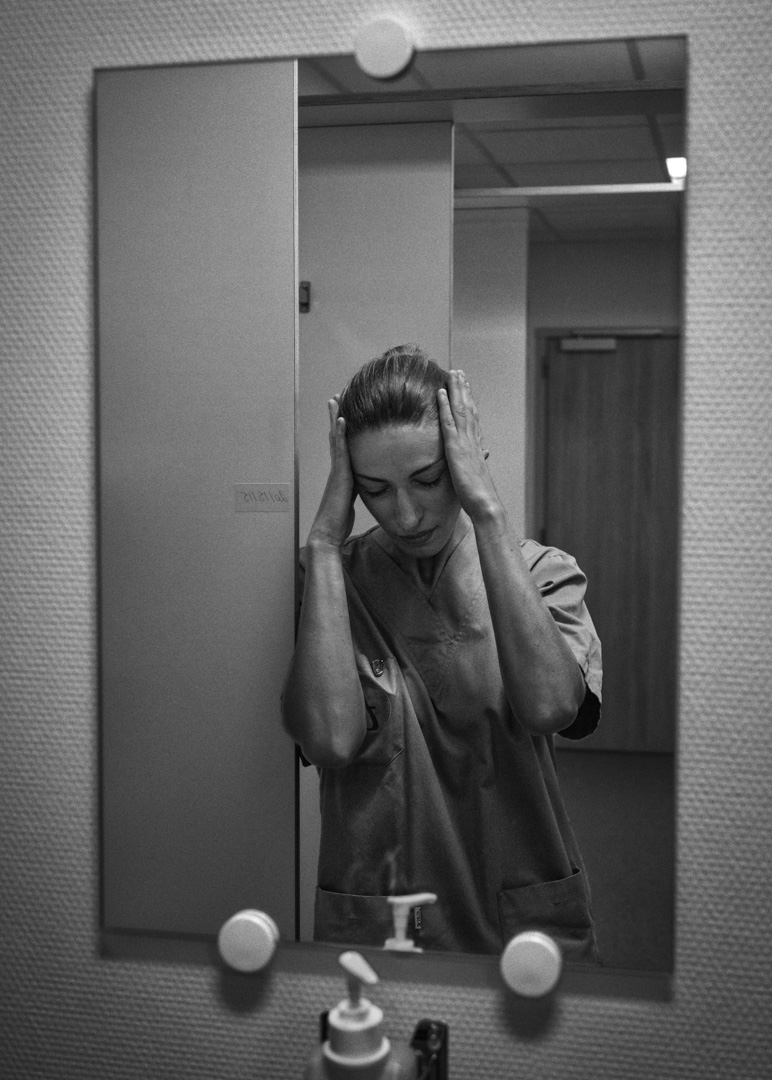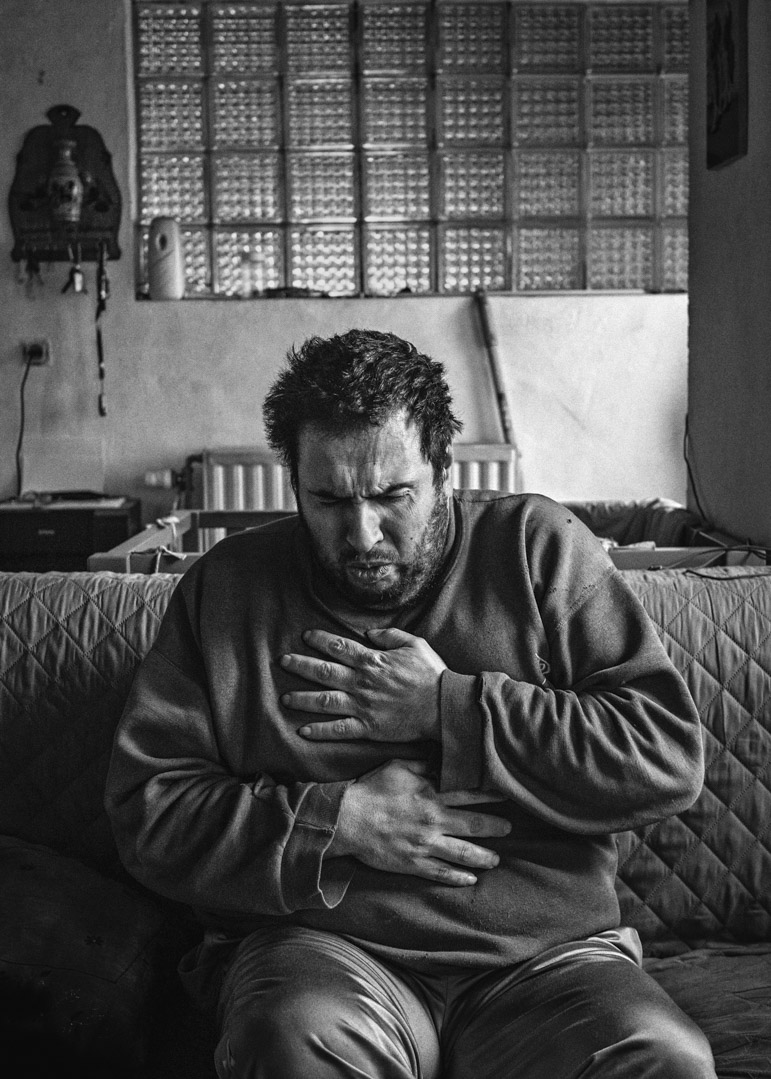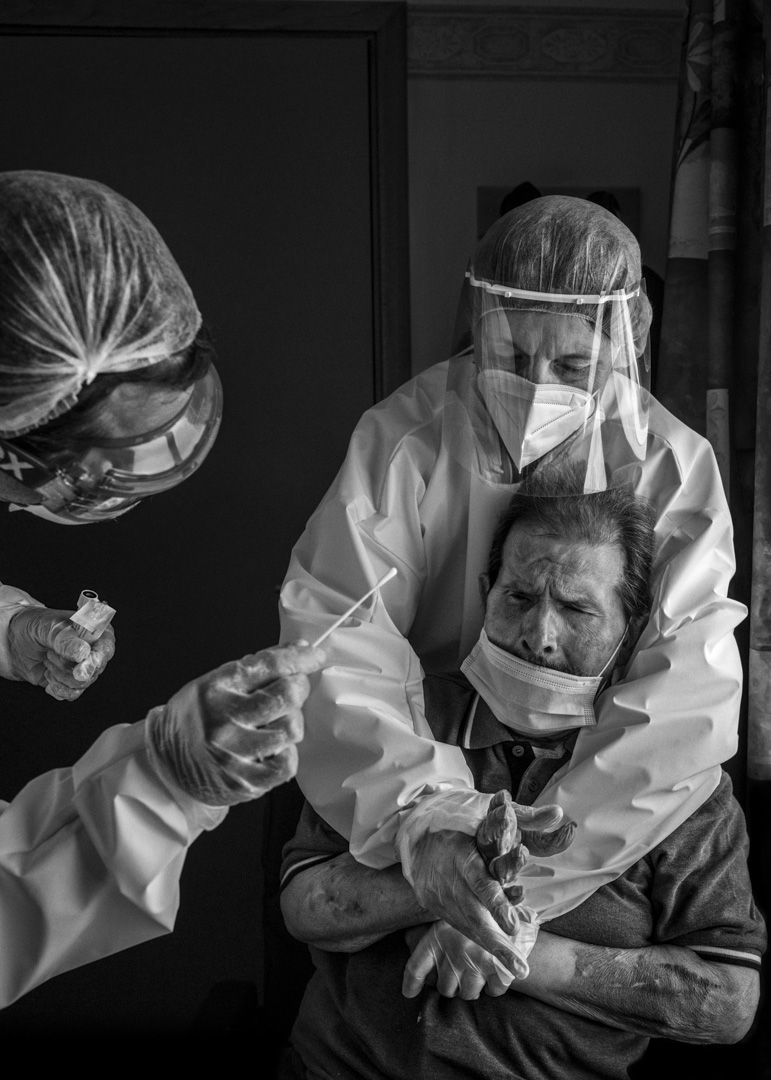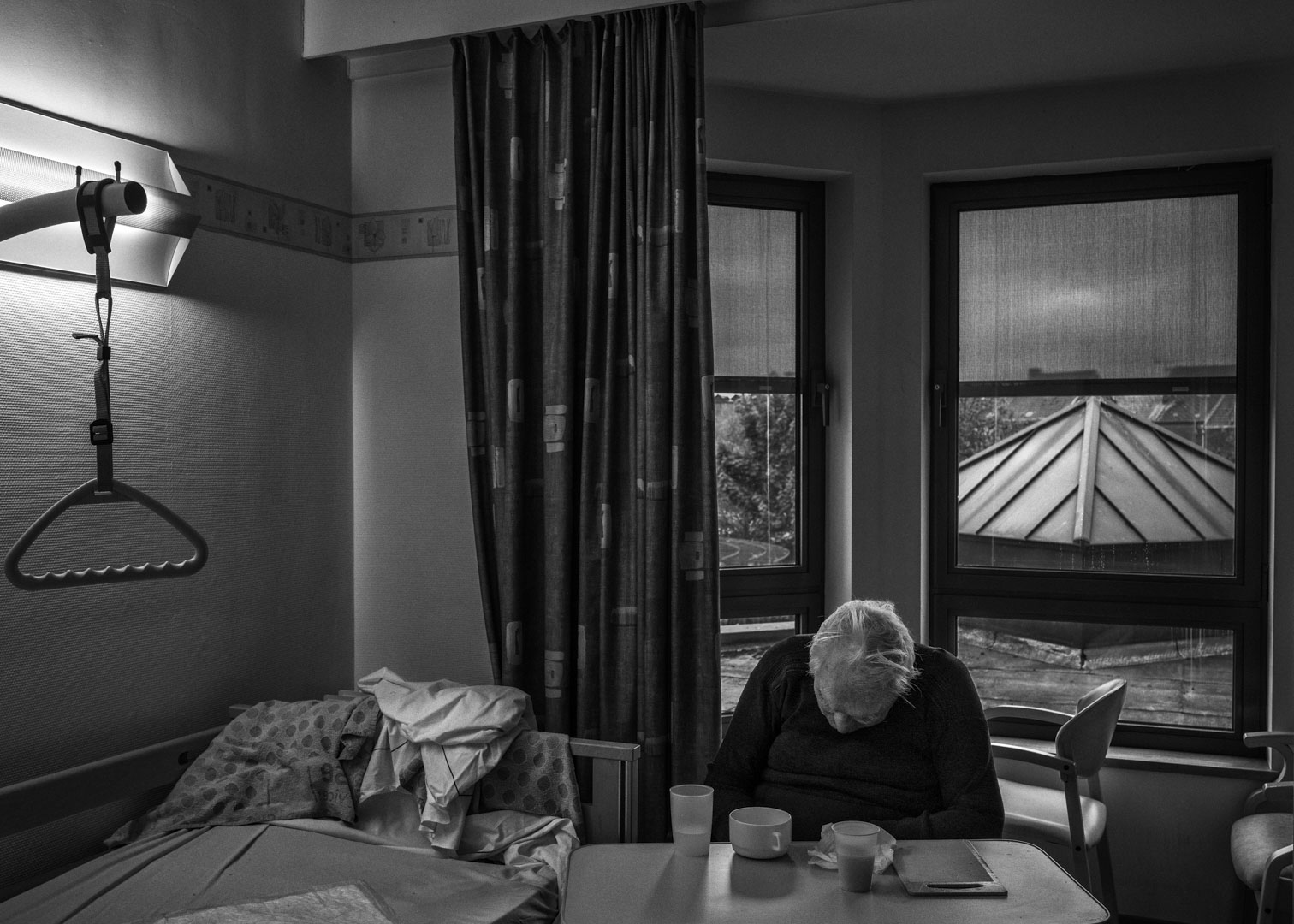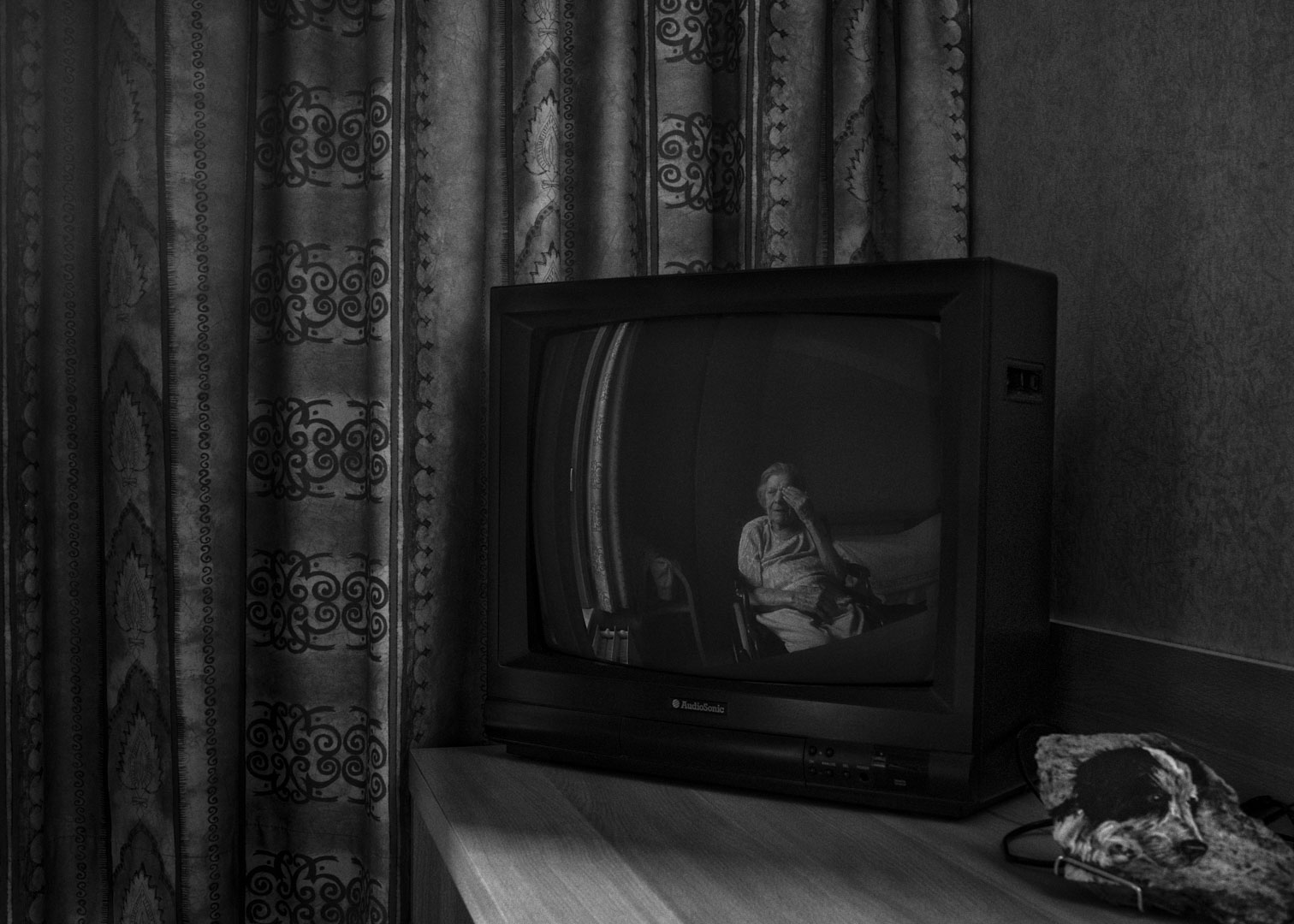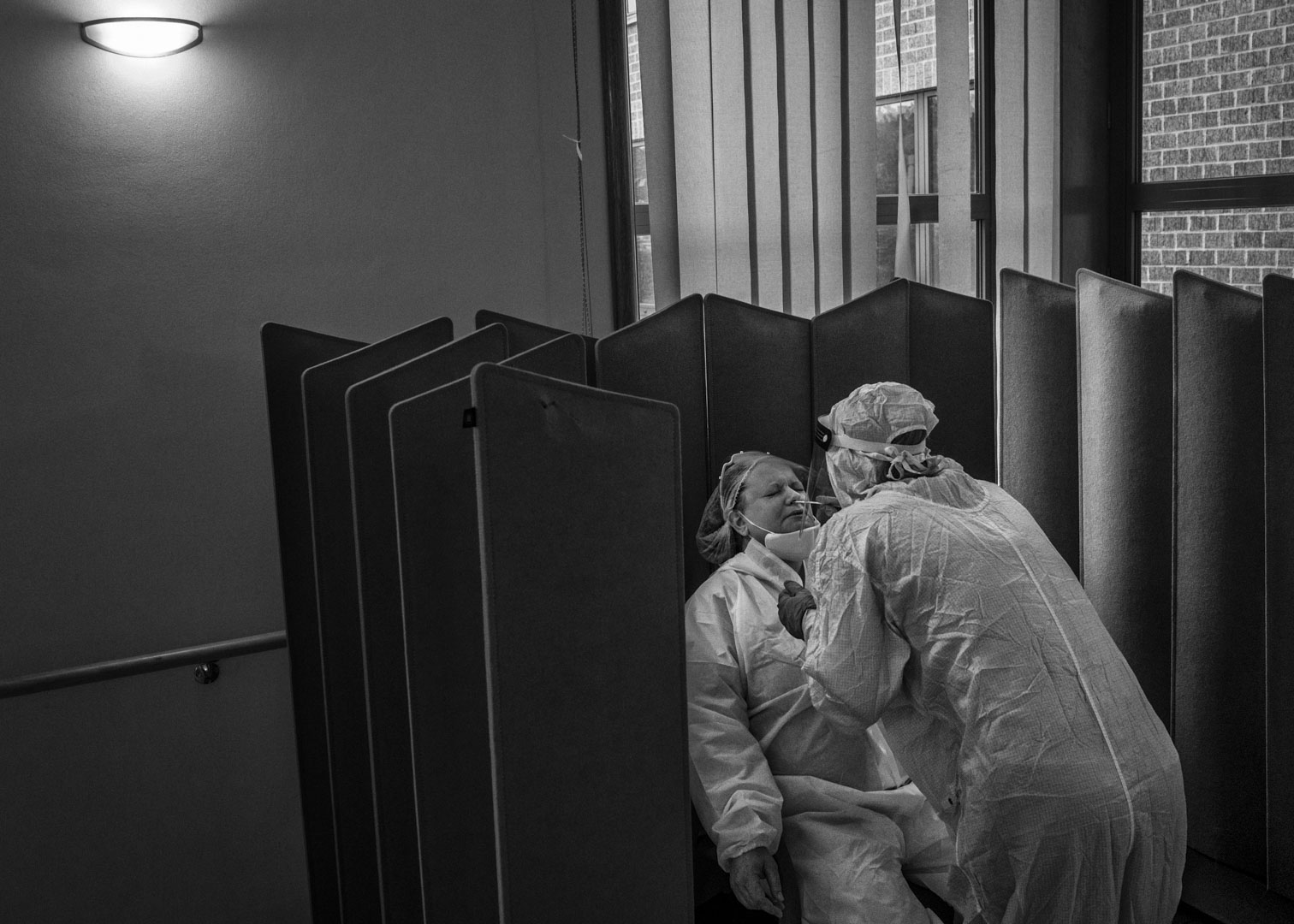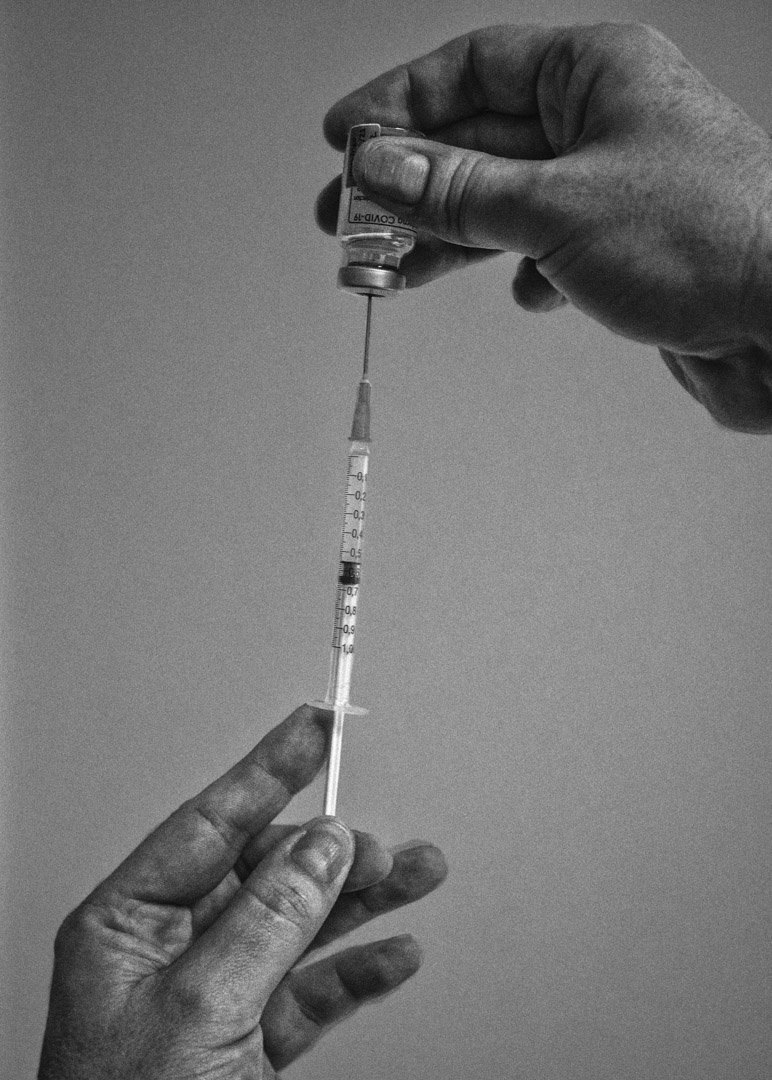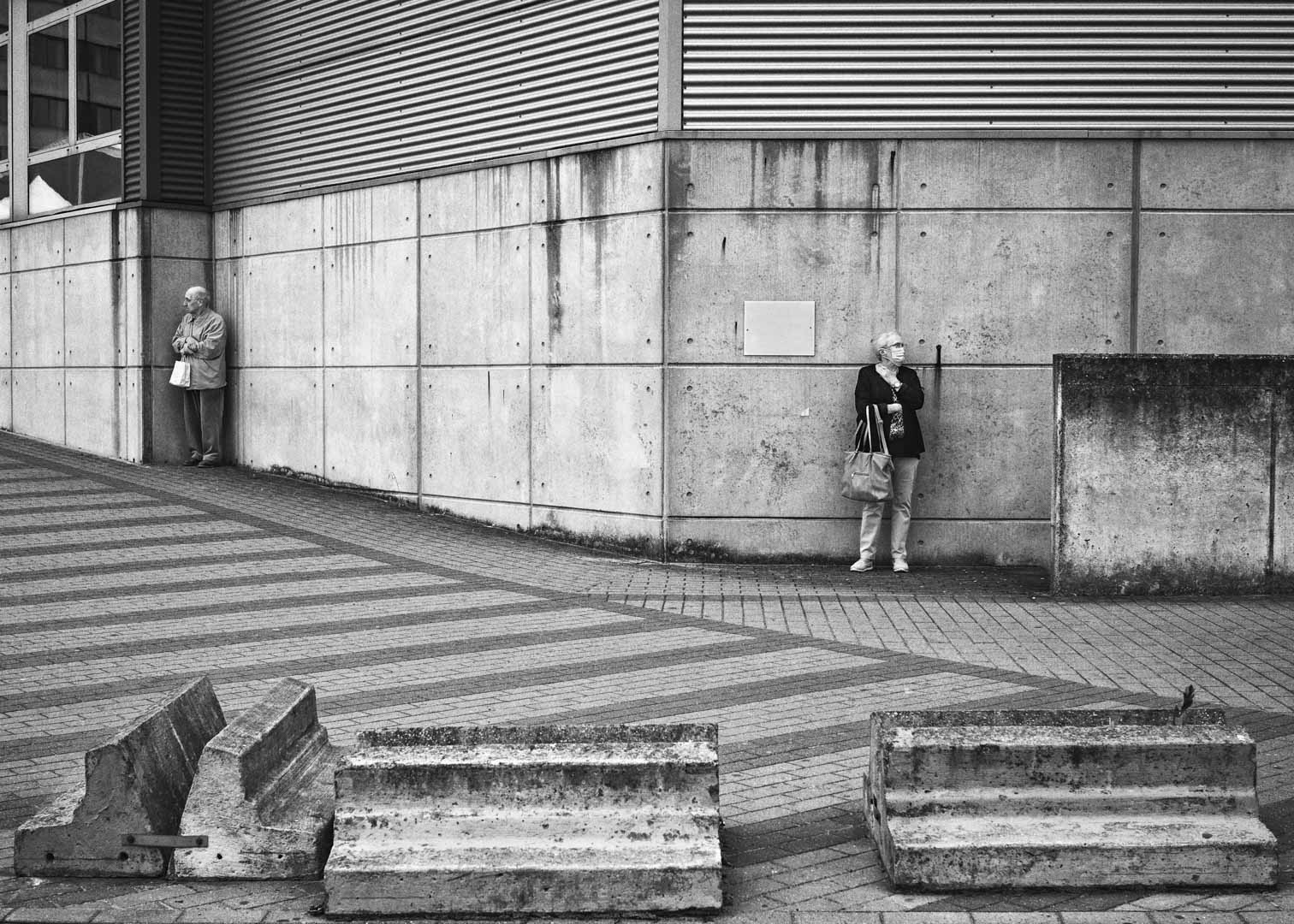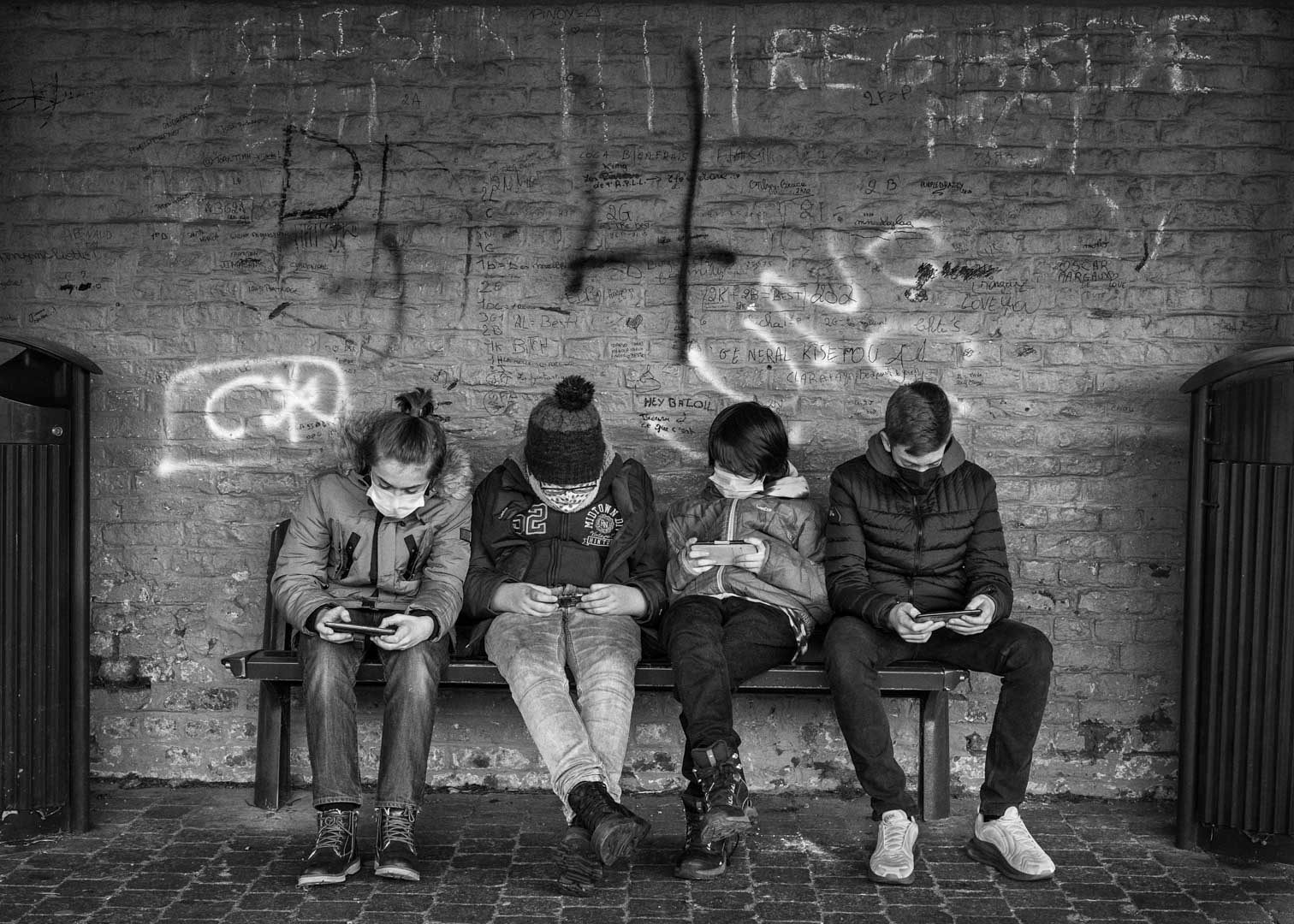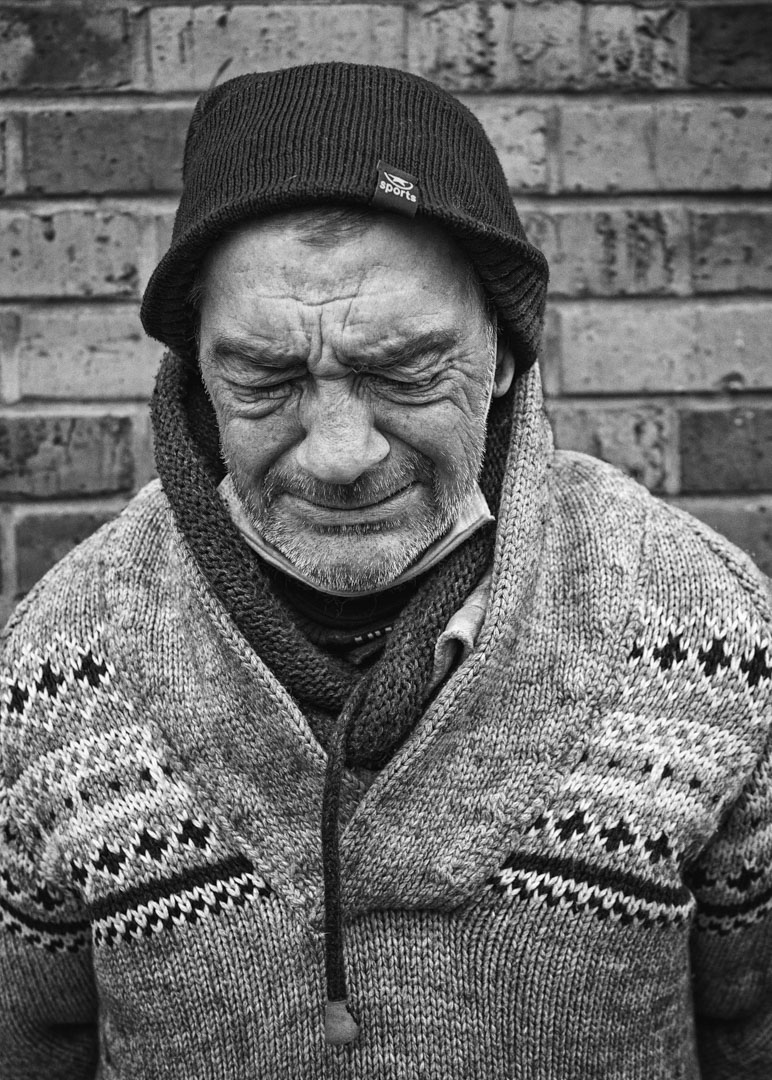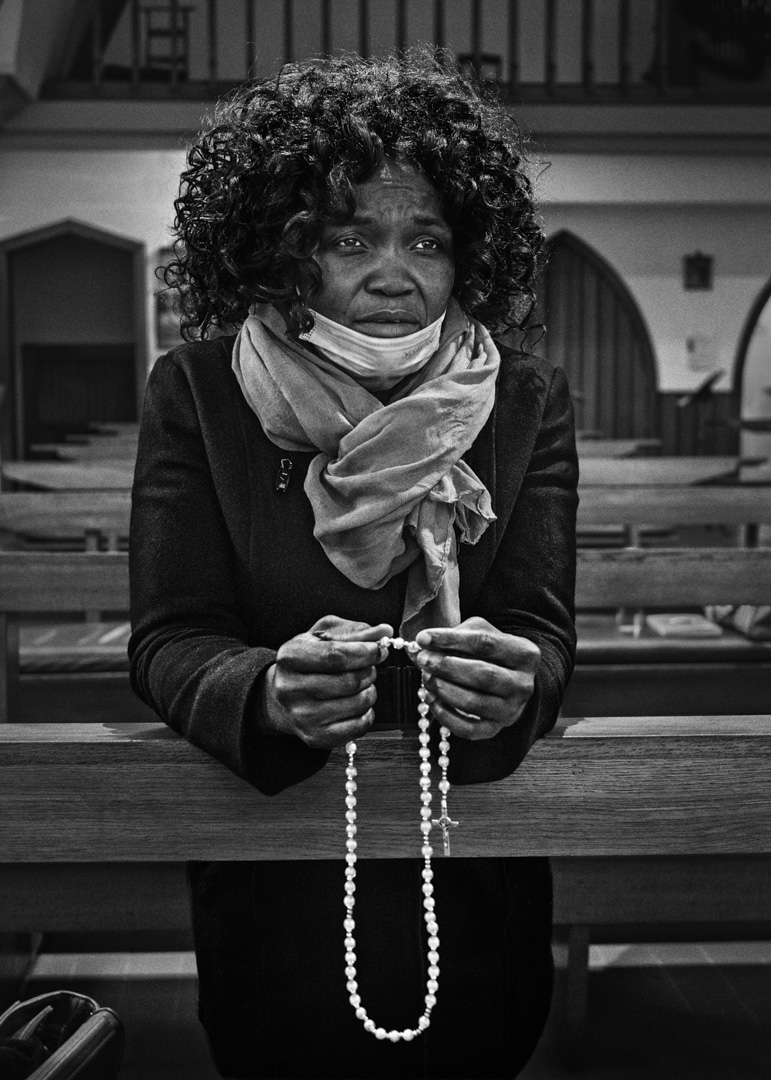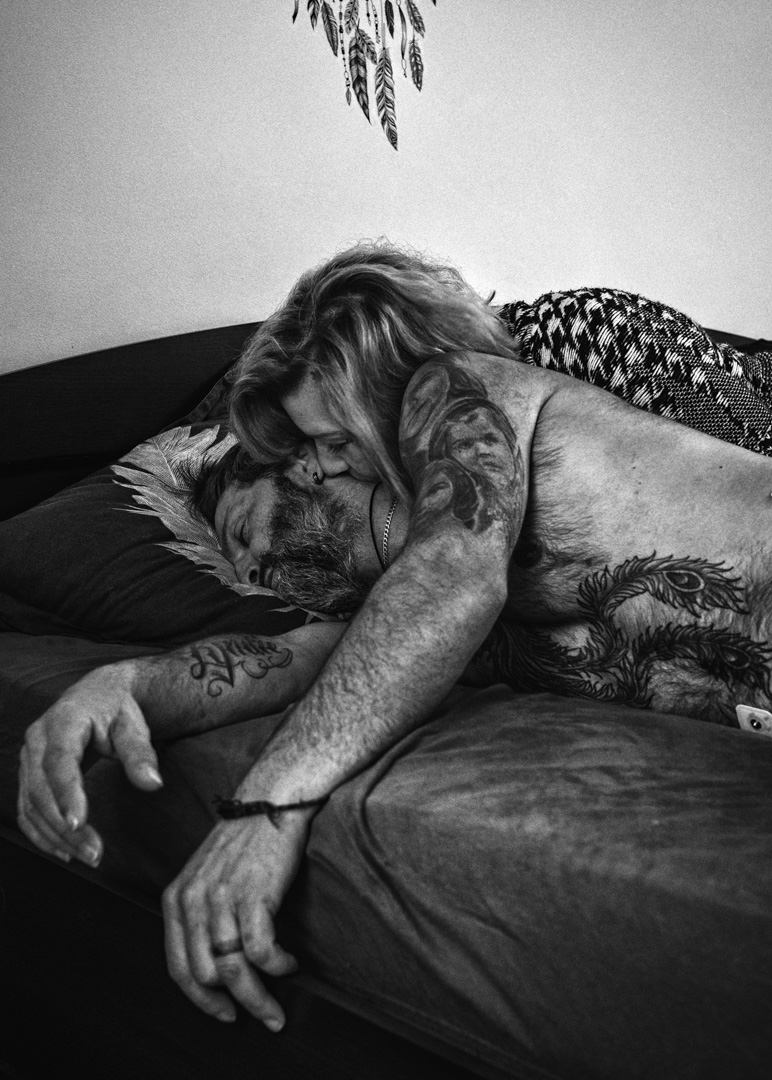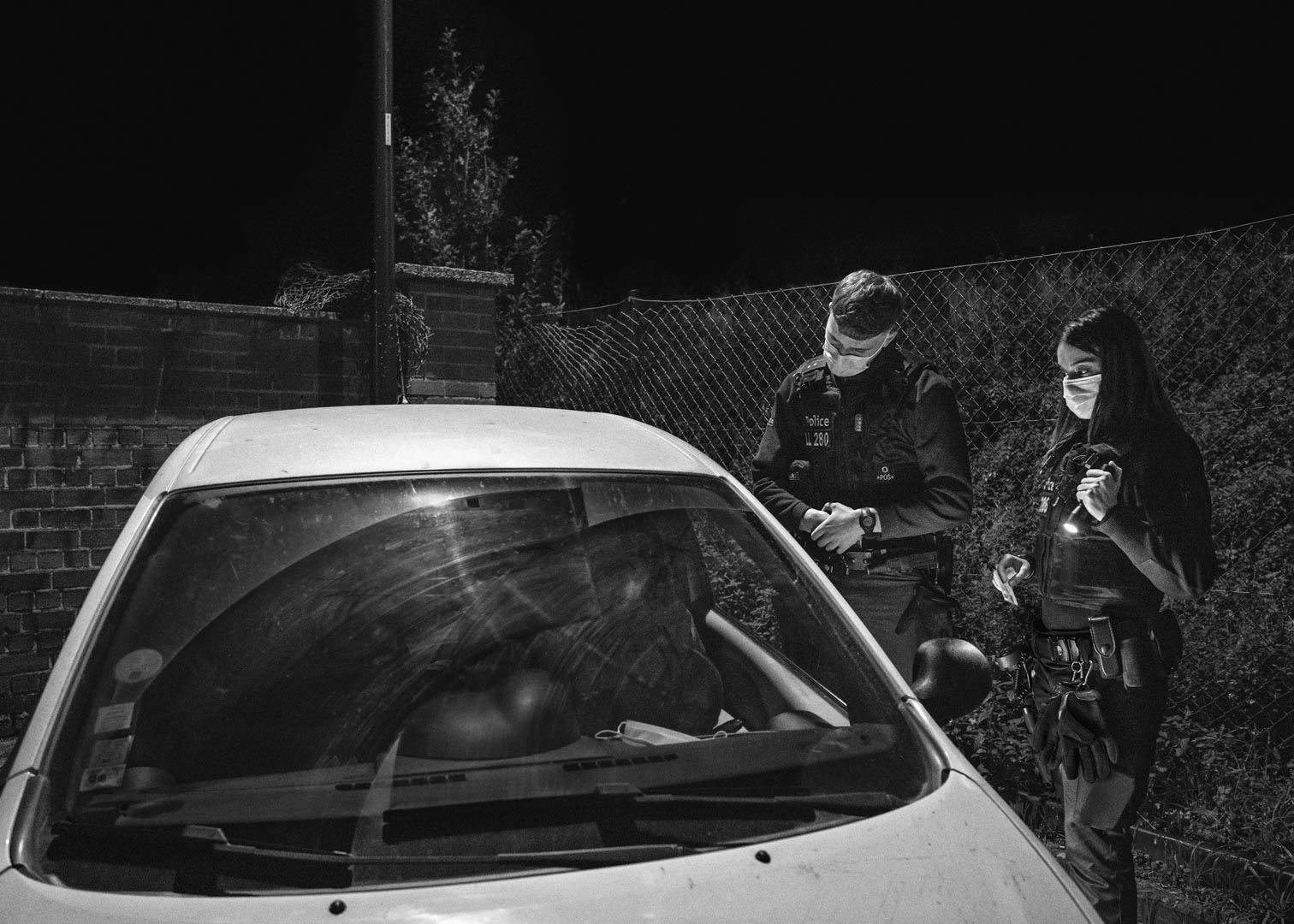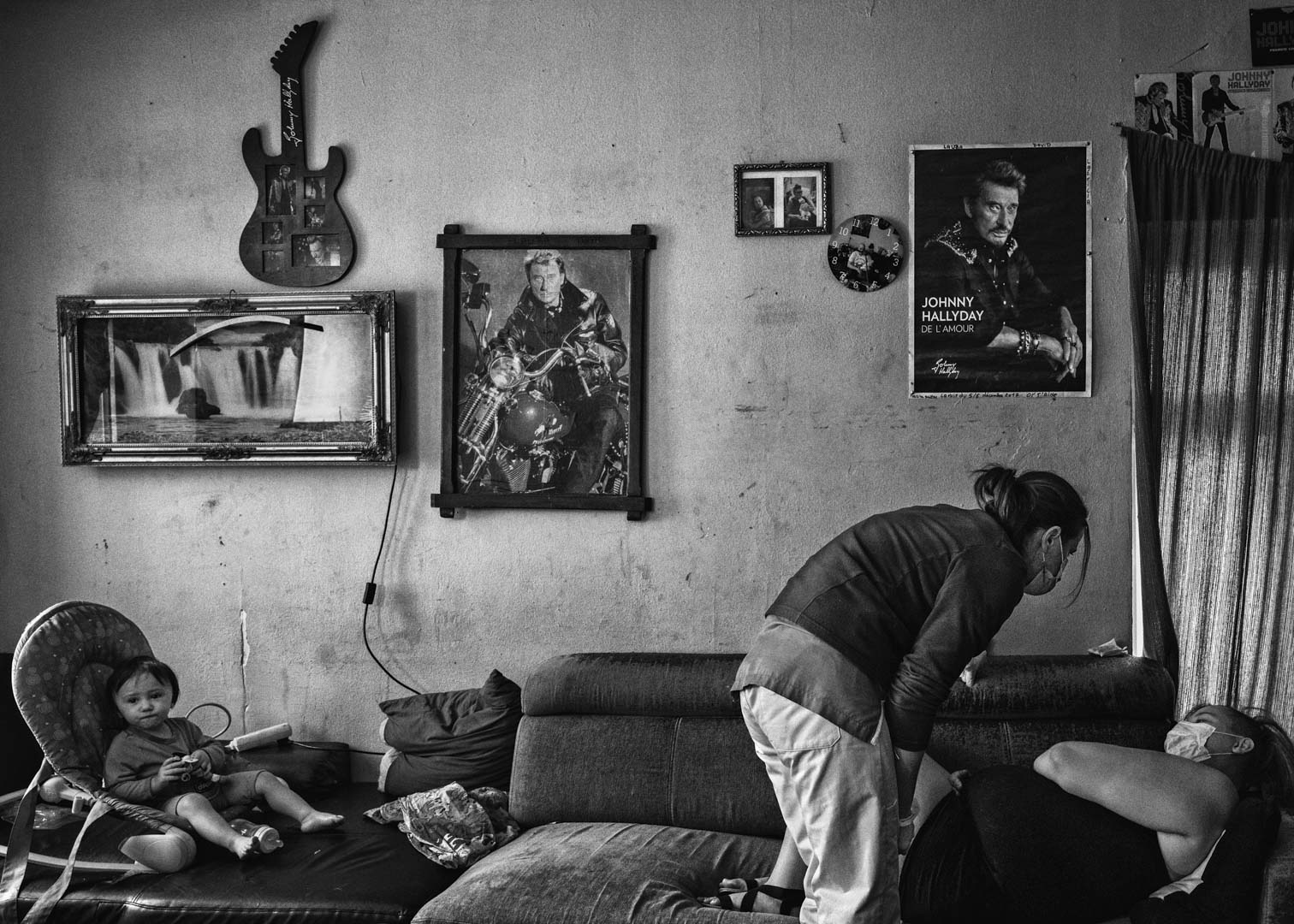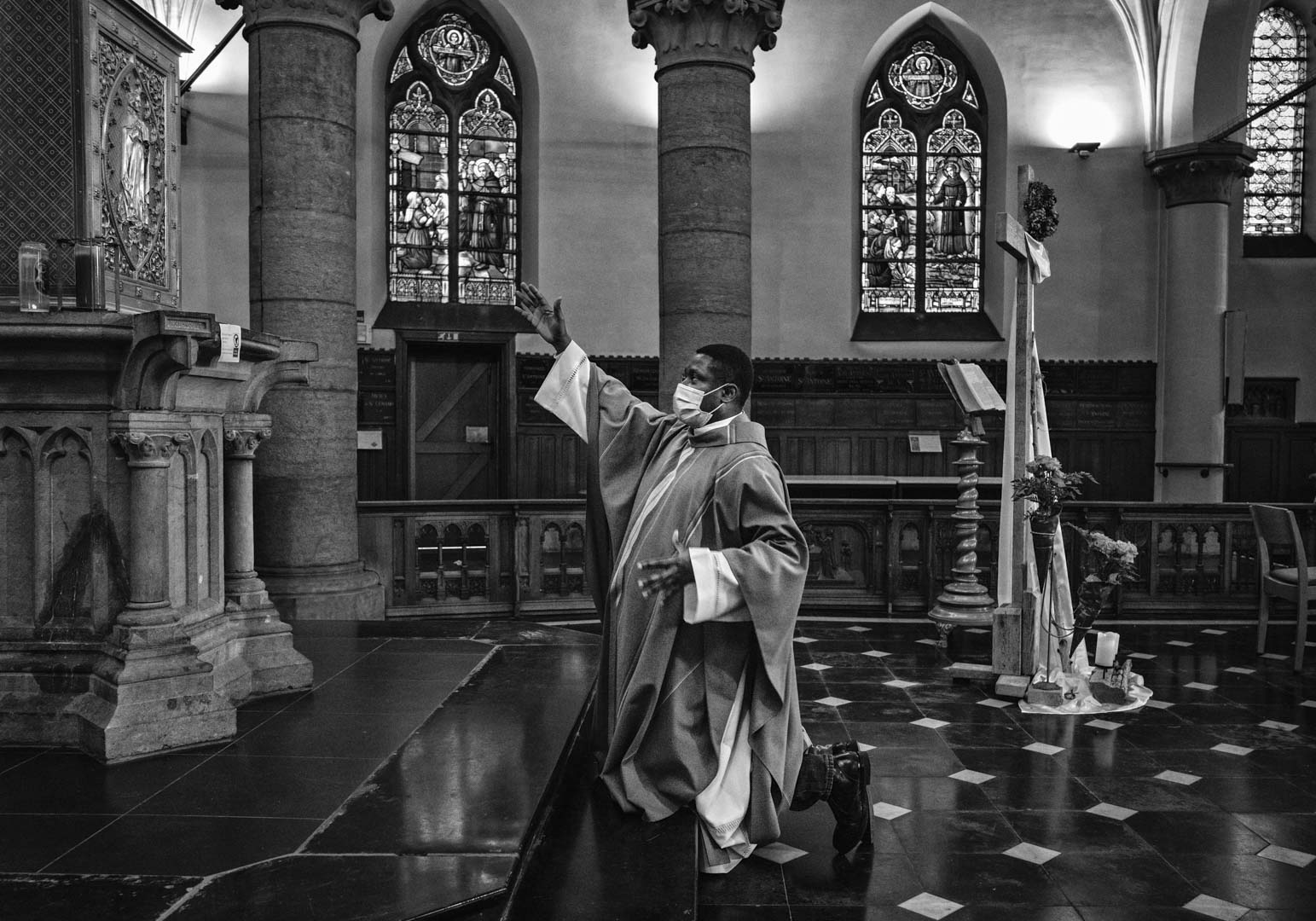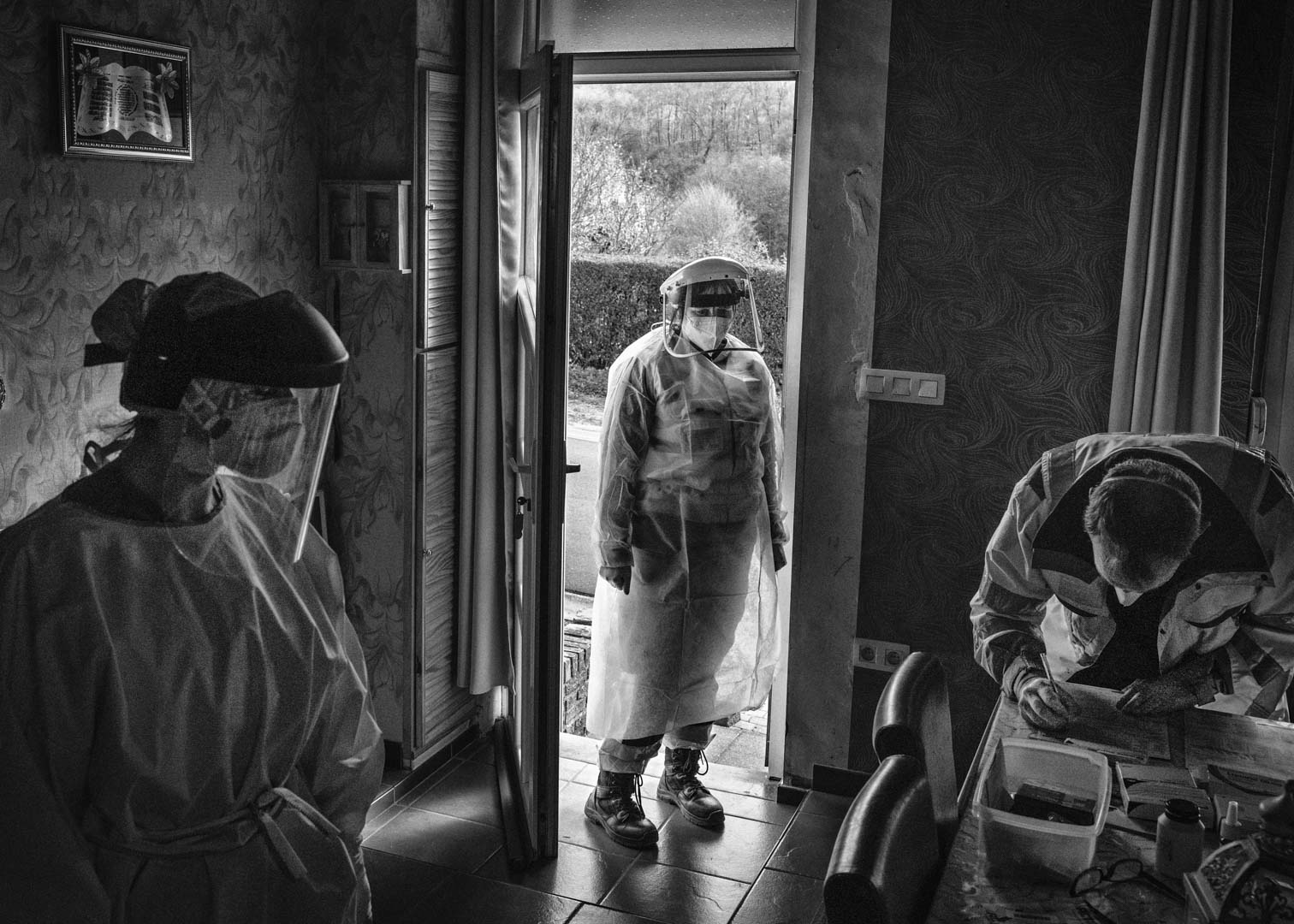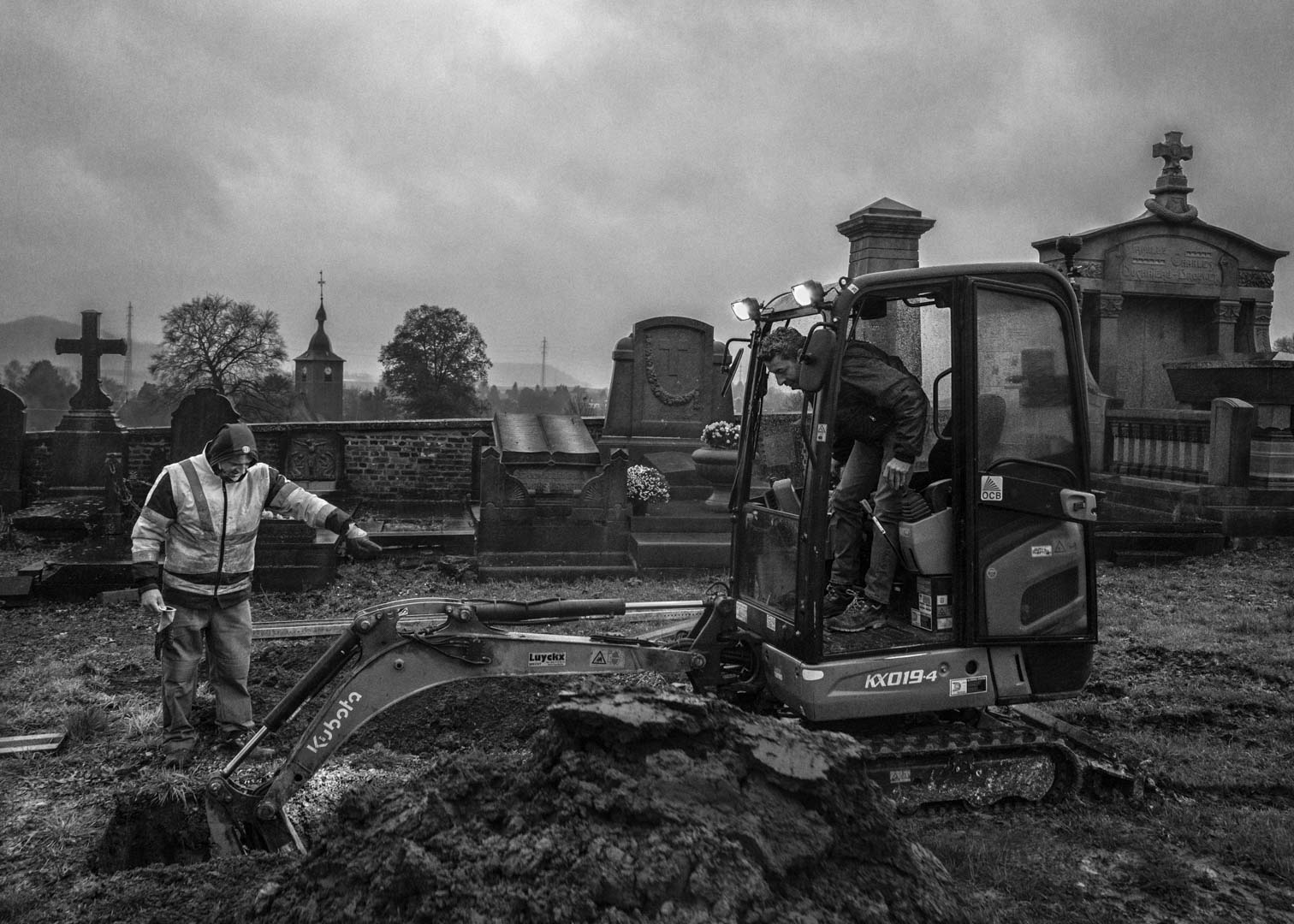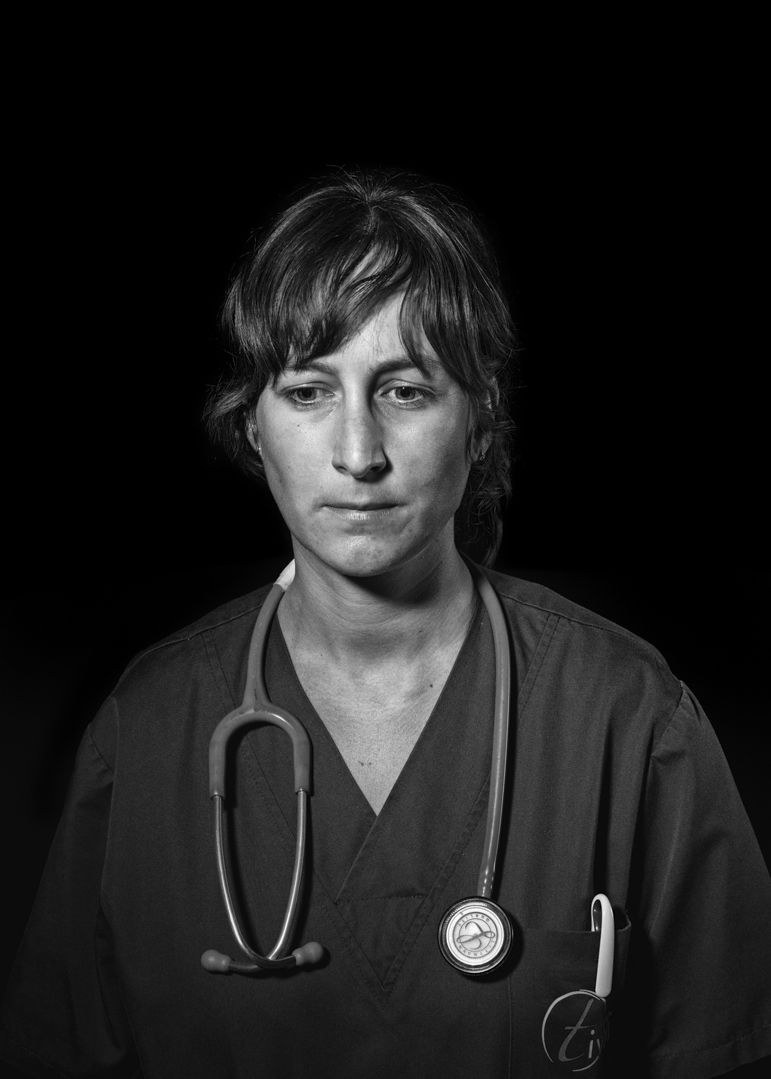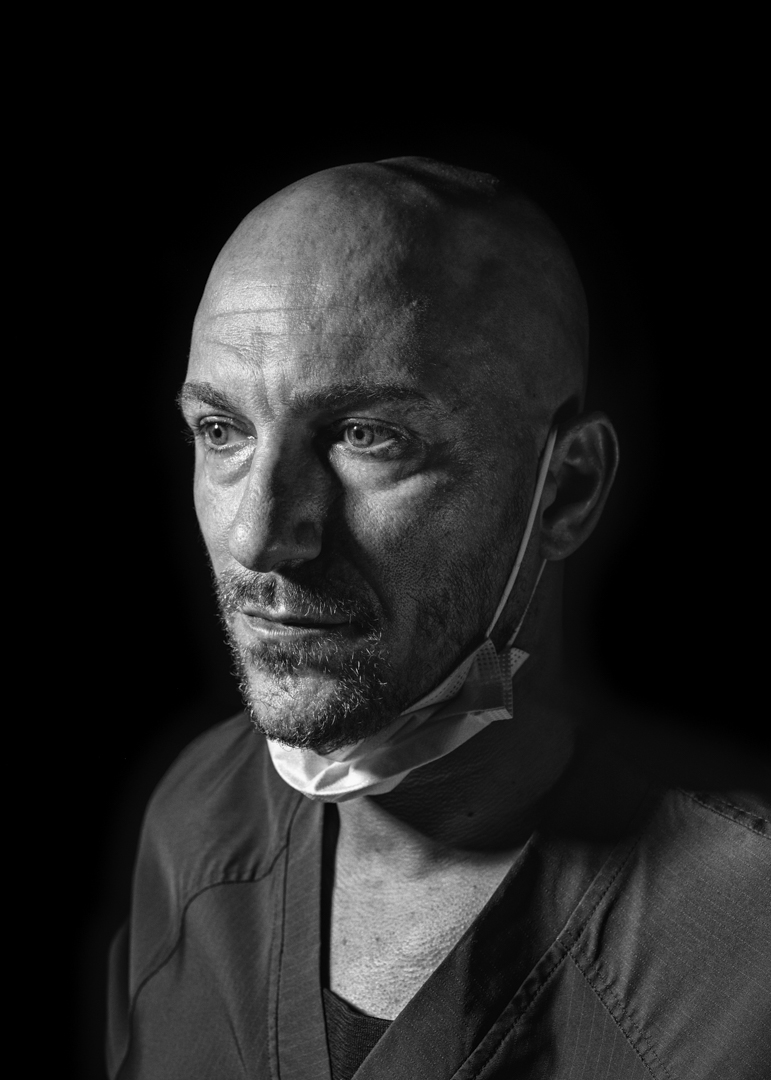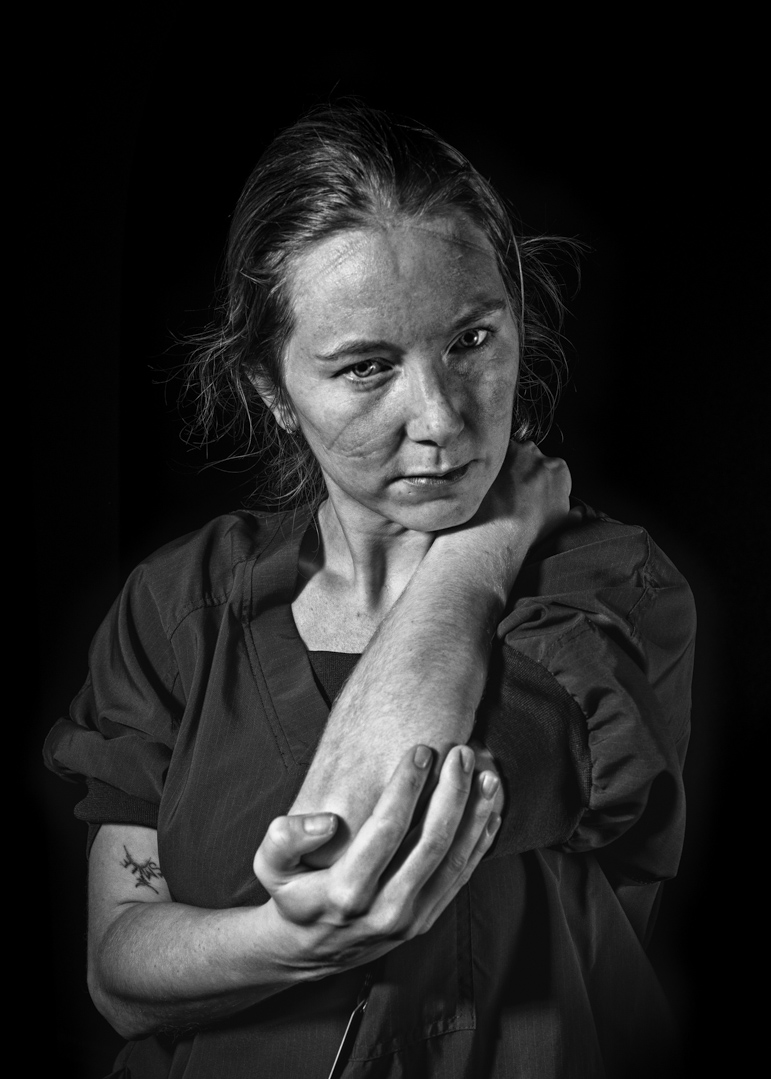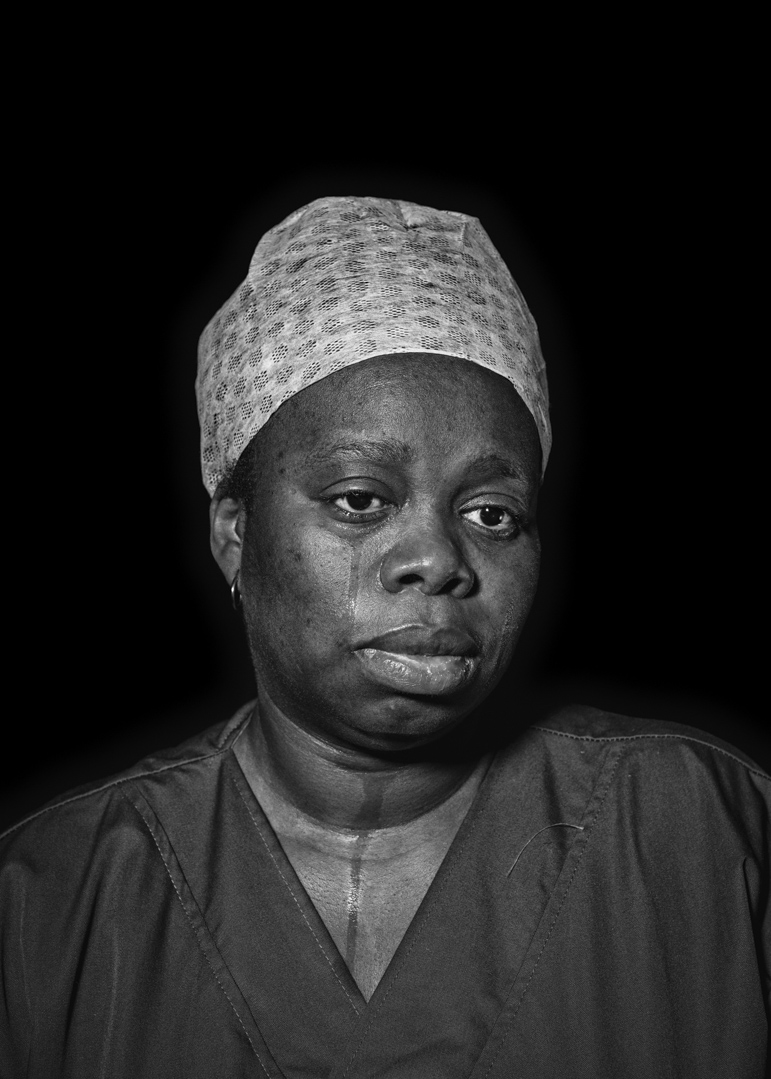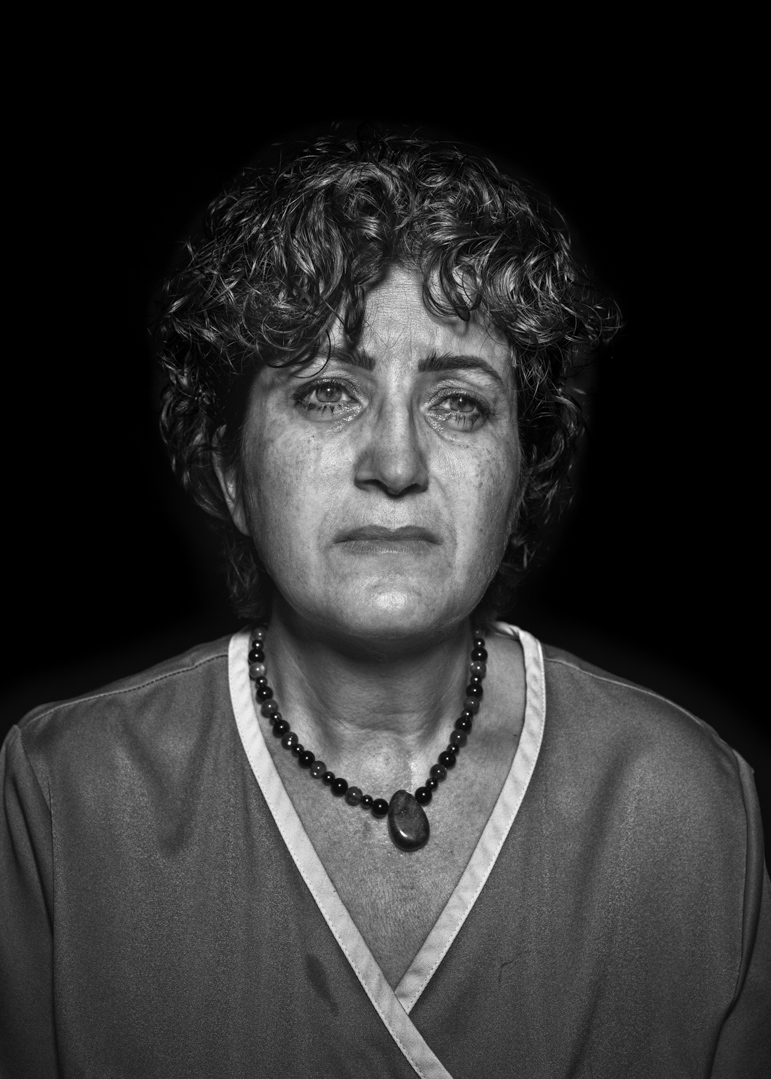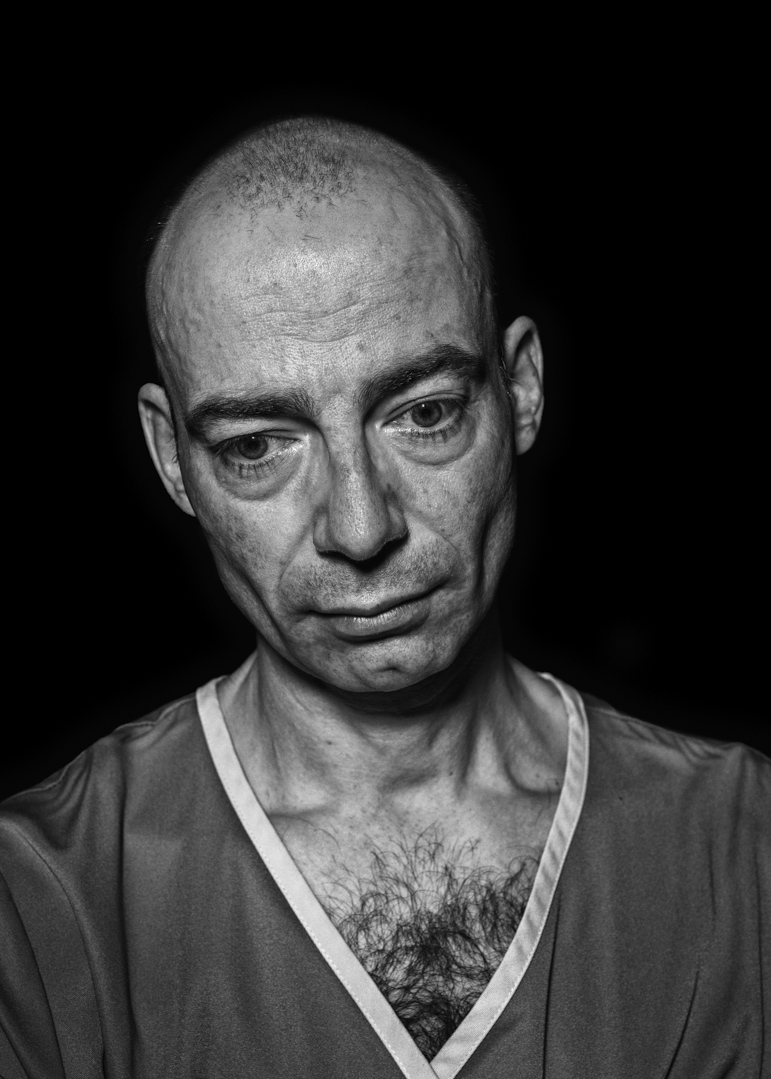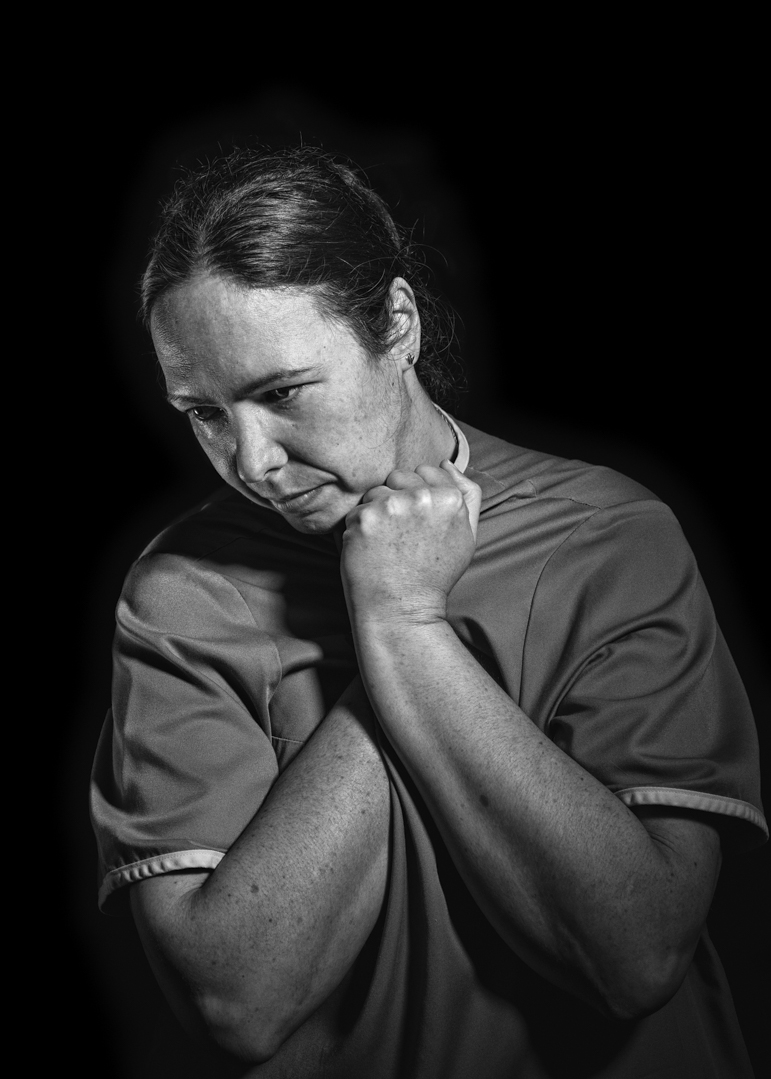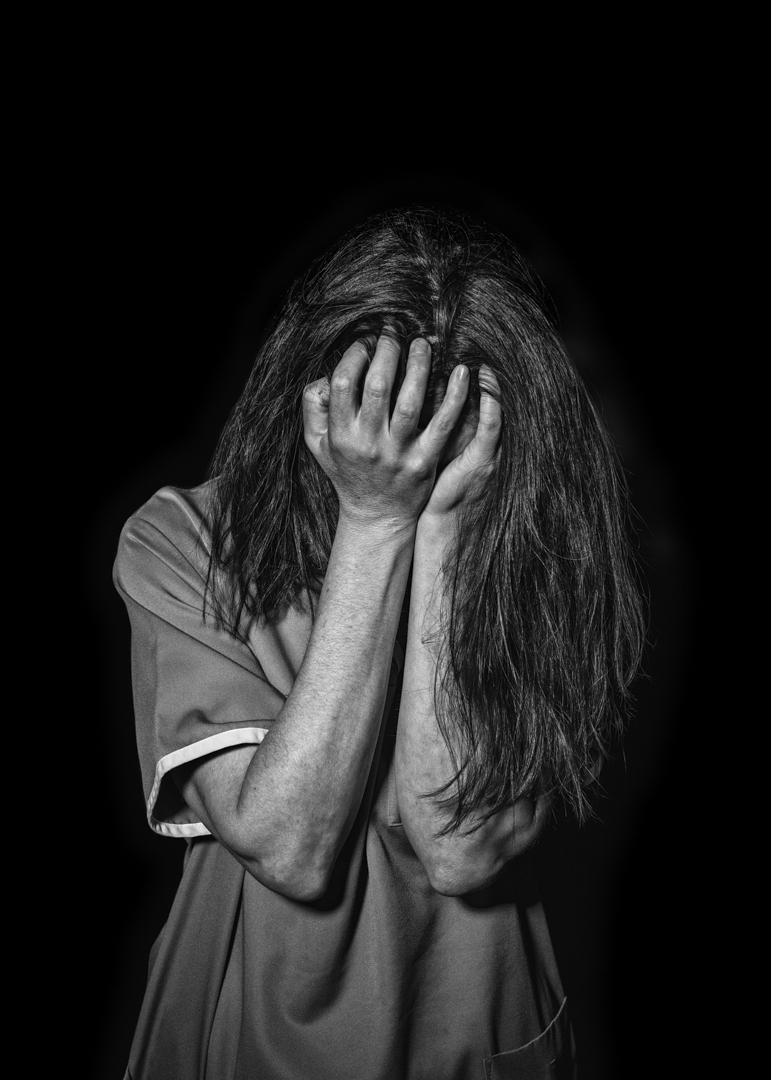Zoonose, 2022
It’s a dystopian world, a wold of machines, of humans disguised as cosmonauts. A world where people die without seeing their loved ones, without touching a hand, without glimpsing a face. Where the treatment they receive is dispensed by a cohort of masks, artificial clothing, plastic visors, gloves, limbs wrapped in synthetic material. It is an army whose soldiers kit each other out, like knights, their armour too complicated to put on without help. Not a square centimetre of skin must escape this vital cover, the smallest opening spells danger. The enemy is everywhere, he is in the bodies spread across the battlefield, lying naked and vulnerable and defenceless, encircled by machines that breathe instead of them and watch over their last moments or their laborious return to some semblance of life. How many will emerge cured? How many will be led from the ward to the grave, swathed in plastic, the coffin sealed without the family being able to gaze one last time on their faces? A dead person’s face speaks, there is always a moment when it becomes clear and peaceful, then when it freezes and solidifies because the time has come to gather into ourselves all that it once was. A life lesson that children in the old days learned early. The room was swamped with friends and flowers. The undertakers made sure that decorum was observed, from one funeral to the next they learned to assume the appropriate expression, to walk with the required solemnity, to hold themselves in a dignified manner. Here, the grey or black limousines wait downstairs endlessly, with their boots open. The strangers who emerge from them also disguise themselves, they slip their polished shoes into plastic covers, put on gloves and masks, spray themselves, go to work like a second army, following on from the first.
With exhaustion comes fear. They know when they are going in. They don’t know when they’ll be coming out. The hours are long, night and day merge into one another, they hold on as long as possible without drinking, without relieving themselves, the armour is so complicated to get off. At each stage, they have to shed their synthetic skin, like a snake, and replace it with another, an aseptic one. In doing so, a little air touches the sweat-stained surface of the real skin, but the muscles, rather than relaxing, tense up, on the alert. The front line is uncertain, the figures go up and down, some die old and sick, but some also die young, there is no logic, everyone is involved.
Hence the intense looks, the combined moves, the frantic sharing of their remaining strength. They are the army of care. The bringers of aid. To quit would be desertion. Even when exhausted, they carry on. Even when sick, they will come back. Society has been divided in two. Those assigned to home, to forced isolation, waiting for the disease to pass. And those assigned to hospital, who join together in the fight, unable to tell the colour of the sky. A closed arena. The only time they escape it, they do so fleetingly. To the toilets, to look in the mirror. Into the corridor, where there is a battalion of cleaners, also kitted out. Into a concrete space between doors, as grey as a prison yard. Sitting on the floor, without taking their masks off, without a word: they are too tired, too anxious. Which of them still see their children, their spouses, their relatives? Which of them remember the life they lived before? A life in which we were promised the benefits of artificial intelligence, the disappearance of old age and death, a manufactured eternity. Here it is, our eternity. It is there in all the faces reflected in screens. Creatures seen from a high angle, dependent on machines. Others, behind glass, committed to constant monitoring. Always masked. Always gloved. Is this how humans live? How they struggle to survive, how they die?
Outside these bunkers of care, the population marvel at the silence, the clear sky, the absence of cars, the clamour of birdsong, the air they can finally breathe without thinking they’re swallowing poison. They were coming to terms with the idea of dying on a planet faced with extinction thanks to the accelerated heating of the climate, the inertia of governments, the cynicism of the powerful, the eradication of species and their habitat. But dying watched by machines, surrounded by masked figures, manipulated by gloved hands … Dying without taking leave of the world, dying without the world saying goodbye to you …
Or else recovering? Yes, sometimes people recover. Everyone is desperate to recover. And what if the world were changing, after all, thanks to those who, week after week, are fighting the invisible enemy? What if their combativeness, their willingness to collaborate, their hopes and despairs, were in fact the crucible of an alchemical experiment the explosive results of which will soon, once we have gone beyond the grief, spread far and wide?
And what if the confines of the hospital at the time of the pandemic turned out to be the true source of the revolution?
Caroline Lamarche
